20 things you need to know before you go to India

Sep 4, 2024 • 13 min read

India is a feast for the senses and we've got everything you need to know before you visit. Denis.Vostrikov/Shutterstock
India is a place that overwhelms your senses in the best possible way – nowhere else delivers quite the same barrage of sights, sounds and sensations as this continent-sized country at the heart of Asia.
It would take a lifetime to see all of India , let alone understand every nuance and facet of this nation of 1.4 billion inhabitants. But with a little preparation, you can learn to navigate the richness of this country, from its snow-capped peaks and velvety beaches to its historic temples and luxuriant palaces.
We've collated the top things you need to know about visiting India, but the journey begins before you leave home. Read on for 22 more insider tips that will help make your vacation unforgettable.

1. Plan your trip around the seasons
India has a reputation for being hot and humid, but with beaches, mountains, hills, coastlines and plains all jammed into a relatively small geographical area, the climate is quite diverse. The southwest monsoon brings rainy weather to most of the country from June to September, but this is the best time of year to visit the high-altitude deserts of Ladakh , although there is a risk of encountering landslides and floods.
In the far south, there’s also a milder rainy season from October to December. The ideal weather window for travel is from October to May, though temperatures and humidity climb to agonizing levels from March onwards in the run-up to the monsoon. If you find yourself in India in the spring, head to the Himalayan foothills for milder temperatures and good trekking conditions.
2. Book your jabs well before you travel
There is no official requirement for vaccinations to enter India (although yellow fever vaccination is needed if you are traveling from a country where the disease is endemic).
That said, it is important that you contact a health professional at least eight weeks before you travel to ensure your jabs are up to date. Vaccinations for diphtheria and tetanus, hepatitis A and B, polio and typhoid are usually recommended, on top of typical childhood vaccinations for measles, mumps, rubella and varicella.
Vaccinations worth considering for longer trips include Japanese B encephalitis, meningitis and rabies. Monkeys, dogs and cats can all carry the rabies parasite, and infection is fatal if untreated.

3. Take malaria precautions
Depending on where in India you are traveling to, you may want to speak to your healthcare provider about taking a course of anti-malarial tablets. For instance, northeastern and eastern parts of India, as well as the city of Mangalore, have a higher malaria risk.
Always take precautions to avoid mosquito bites – this will also help you avoid dengue fever, a viral infection that is transmitted by mosquitoes to humans. Sleeping under a mosquito net, wearing long sleeves and trousers in light colors, and using a repellent and/or a plug-in mosquito killer with a high concentration of DEET (diethyltoluamide) is advisable.
4. Get insured
Travel insurance is essential for India. Depending on where you travel to, you may find public hospitals are poorly equipped. Additionally, most private clinics and hospitals require payment ahead of treatment. Make sure you are covered for emergency evacuation and also for any adventure activities you plan to get involved in.
If you’re unlucky enough to be a victim of crime, contact the local police station or dial 100 or 112, the national emergency number. You’ll need to get the police to file a report (a “FIR" – First Information Report) to make a claim on your travel insurance.
5. Plan your comms before you travel
Many things in India (including train bookings or ordering food online) get easier if you have a local SIM card. Bring an unlocked phone from home (or pick one up locally) and get a phone shop to sign you up for a local pay-as-you-go SIM package on arrival.
You’ll need to bring passport photos and photocopies of your passport ID pages to complete the application.

6. Book ahead for busy times and festivals
India can get very busy from November to February, so affordable accommodation is usually swamped in peak season. It’s a good idea to book ahead, either directly with the venues or via booking aggregator sites such as Agoda and MakeMyTrip.
Also, book train tickets in advance where possible , particularly for popular routes. Tickets can be booked via the government booking site IRCTC or more easily through local booking sites such as 12Go or Cleartrip.
While India officially follows the Gregorian calendar, the major festivals for Hinduism, Buddhism, Jainism, Islam and several other religions follow lunar calendars and fall on different dates year to year. Always check festival dates before you book your trip; the Indian government maintains a useful online list of public holidays .
7. Learn local etiquette
English is the lingua franca in most metropolitan areas in India, and you’ll get away with polite hellos, goodbyes and thank yous in smaller towns too. However, if you’re traveling in northern India, you can say "namaste" (I bow to you) with your hands together in a prayer-like gesture in front of your chest.
Similarly, when meeting Muslims in north India, you can say "salaam alaikum" (peace be with you) – the correct response is "alaikum salaam." Most of the time, it’s the effort that’s welcomed over pronunciation, so don’t be shy!
Shaking hands is a standard business greeting between men, but outside metropolitan regions, men and women rarely shake. Only ever use your right hand. The same rule applies when passing things to people – including money.
If you get invited to someone’s home, bring a small gift (flowers or sweets are always a safe bet) and remove your shoes before entering. It’s polite to eat and drink what you are offered, even if you don’t really fancy it.
8. What to eat and how to eat it
Many religions in India have their own dietary rules. Muslims avoid pork, many Hindus avoid beef, and some Hindus and Buddhists are vegetarian or vegan. Many Jains are vegetarians who avoid some vegetables (most notably onions, garlic and potatoes) and who try to avoid causing harm to all living creatures. These rules mean vegan and vegetarian food is often easy to find in India.
Eating with your hands is the norm in many restaurants, particularly in parts of southern India. Take your cue from other patrons in the restaurant, and remember to eat with your right hand. Mix rice and curry into balls with your fingers and push it into your mouth with your thumb. Some thalis (plate meals consisting of multiple dishes served in tandem) are served not on a plate but on a washed and flash-heated banana leaf.

9. Stay generous when haggling
Haggling for a fair price when buying things – in street stalls and open-air markets – is a way of life in India. Although it can sometimes be a frustrating experience, losing your temper is extremely bad form – if you can’t agree on a price with the vendor that you are both happy with, politely decline and shop somewhere else.
The rules of the game are as follows. The vendor will quote you a price that is more than the item is worth, then you’ll come back with a counter-offer, working up from there until you reach a mutually agreeable figure.
The “walking away” trick may bring a few last-minute adjustments, but before long, you’ll reach a threshold that the vendor won’t go below. Throwing in extra items may bring a discount on the overall cost. Many travelers prefer not to haggle in places where the money goes directly to artisans.
10. Dress modestly
Depending on where in India you are, modesty is taken seriously – especially for women. Travelers of any gender will have an easier time if they wear loose-fitting clothing that covers their legs and arms. Swimwear is only appropriate for the beach – although it is not uncommon to see locals swim fully clothed. To fit in, consider investing in a kurta pyjama (a traditional garment resembling a long shirt and loose trousers for men) or a salwar kameez (a long shirt, loose trousers and scarf for women).

11. Respect etiquette at religious sites
Religion is taken very seriously in India, so it pays to know the rules and expectations for visits to temples, mosques, monasteries, gurdwaras (Sikh shrines), synagogues and churches. Always check if you are allowed to enter – some temples and mosques are closed to people who don’t follow the faith. Mosques may also be closed to visitors during prayers or on Fridays.
If asked to do so, remove your shoes before entering any religious building, and be prepared to cover your head with a scarf or shawl. Generally, always cover your legs and arms (a sarong can be handy as an emergency cover-all). Some temples also ban leather goods, and many religious sites do not allow photography.
Avoid pointing the soles of your feet towards a person or deity – this is considered disrespectful. The same goes for touching any person or effigy on the head. It is conventional to walk around Buddhist and Hindu shrines in a clockwise direction, in a ceremonial circuit known as a parikrama .
Making an offering or leaving a donation is often expected – locals always offer something, but be wary of people waving receipts showing huge donations. Giving something is appropriate, but don’t feel pressured into leaving large sums.
12. Giving alms is common
The giving of alms has a long history in India, and foreigners can expect to be approached regularly with requests for money. Whether you give or not is a personal choice, but many Indians give on a daily basis, particularly when visiting temples and mosques. Be aware that some requests for money will be scams, and you may be able to do more good by giving your time or cash to charity or aid organizations you’ve taken time to research, rather than handing out cash.
13. Respect social attitudes
India has complex social rules about respect for elders. Depending on where you are traveling to, older people are often greeted with the honorific “auntie” or “uncle,” and the ending ji may also be added to someone’s name as a sign of respect.
Outside bigger cities, India can be quite conservative when it comes to interactions between unmarried men and women. Also, most parts of India are conservative when it comes to same-sex relationships. Whatever your sexuality, it’s best to avoid public displays of affection.
14. Street harassment is unfortunately common
Although harassment can happen anywhere, parts of India are constantly in the news owing to a lack of women’s safety. Beyond long, unwelcome stares and persistent attempts to start a conversation, more serious assaults are also a risk. Groping is common in crowds (particularly during festivals).
Exercise caution like you would anywhere else, and remain alert. Never get into a taxi or auto rickshaw containing anyone other than the driver, and avoid walking alone in quiet areas, particularly at night. Decline offers of food or drinks from strangers.
If traveling by public transport as a woman, it's best to seek out train carriages and designated seating reserved for women. Wearing a wedding ring (even if not married) and using dark sunglasses and headphones can buy you some privacy on public transport. If you are being hassled, drawing loud attention to the intrusion may encourage others to come to your aid.

15. Watch local news to keep informed
India has seen deadly attacks by separatist and Marxist groups and Kashmiri insurgents. Monitor the local news and be alert for suspicious behavior, particularly around major tourist sites. Always check the security situation before traveling to Srinagar and the Kashmir Valley in case of flare-ups of unrest. Strikes, demonstrations and protests are also best avoided, as violence is a risk. It goes without saying but in the event of trouble, obey local curfews and stay inside – your hotel is probably the safest place to be.
Similarly, some geographical areas in India are prone to natural disasters, and the risk is higher in certain seasons. Hilly areas of Himachal Pradesh, for instance, often see flash flooding and landslides during the monsoon. Be alert to signs of natural disasters and keep an eye on the local news so you know which areas to avoid. Follow the Indian Meteorological Department’s website as well as their social media handle for timely updates. If you are caught up in a disaster, follow the advice of emergency workers and try to leave the area quickly.
16. Get familiar with local rules and regulations
India has a few laws and regulations that visitors might be unfamiliar with. For instance, taking photographs of bridges, the periphery of military camps and border crossings – or flying drones over them – is considered a serious security issue.
When traveling by plane internally in India, you may be asked to surrender batteries from devices in your cabin bags. Smoking is banned in most public places, and a few states also have bans on the consumption of beef – killing or injuring a cow in a road accident, even accidentally, can lead to violent reprisals.
To avoid sticky situations, take the time to research where you’re going, and talk to staff at your hotel or hostel or your B&B host for advice on things to be aware of.

17. Take the altitude seriously when hiking
Acute Mountain Sickness (AMS) is a risk when traveling above 2500m (8202ft), which covers most of the Indian Himalayas . AMS can be fatal, so always ascend slowly and take rest days to allow your body to acclimate to significant elevation changes. If you begin to feel ill while hiking in the mountains, stop, and if your symptoms don’t improve, descend immediately.
18. Steer clear of drugs
India may have a reputation amongst travelers as a place to push boundaries, but its drug laws are strict. Possessing even small amounts of drugs for personal use can lead to a prison sentence.
Some religious groups are permitted to consume marijuana for ceremonial purposes, but that often doesn’t extend to tourists. You can, however, find bhaang – a marijuana mixture made with the leaves (rather than the bud) of the cannabis plant – at government-approved bhaang shops.
19. Avoid the tap water
The tap water in India is not potable. Drinking or brushing your teeth with it can be a fast track to stomach troubles – the most common illness tourists experience in India. Stick to purified or bottled water (or even better, purify your own to avoid contributing to India’s plastic waste mountain).
The water rule extends to ice (be wary of ice in drinks and ice cream) and to uncooked foods, particularly salads and dishes such as coriander chutneys, which may have been washed with contaminated water. When eating fruit, stick to things you can peel or wash thoroughly yourself, and be cautious of freshly prepared juices. Hot drinks are generally fine, so drink your fill of chai (milky tea, often spiced and sweet).
20. Spot the scams
India has a reputation for scams designed to separate tourists from their money, and touts and confidence tricksters can often be found where tourists gather. Get tourist information and make bookings at official offices, rather than “tourist offices” you have been led to by people offering unsolicited help.
If anyone steers you to a hotel, shop or other establishment without you asking, they may be angling for a commission, which will be added to the price you pay. Be dubious of claims that the place you want to go is “closed” – always check yourself to be sure.
Exercise common sense and be wary of deals that sound too good to be true – for example, the gem scam, where travelers are tricked into buying worthless gems to “sell at a profit back home.”
This article was first published Mar 19, 2022 and updated Sep 4, 2024.
Explore related stories
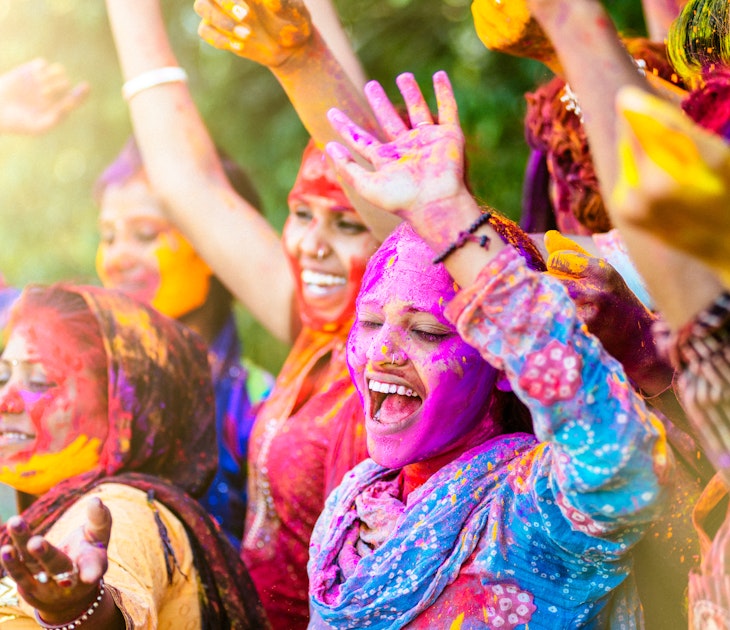
Festivals & Events
Aug 29, 2024 • 7 min read
India is so vast that seasons mean different things as you travel from region to region. Here's the lowdown on when to visit for the perfect India trip.

Aug 5, 2024 • 6 min read

Jun 26, 2024 • 9 min read

May 31, 2024 • 5 min read

May 29, 2024 • 7 min read

May 28, 2024 • 9 min read

Jan 11, 2024 • 4 min read

Jan 5, 2024 • 19 min read

Jan 2, 2024 • 7 min read

Dec 27, 2023 • 8 min read

Explore India with Our Package
Explore india, festivals & culture, explore india with india travel, experience luxury trains of india, experience unique & luxury hotel in india, top destinations in india.

OUR PACKAGES
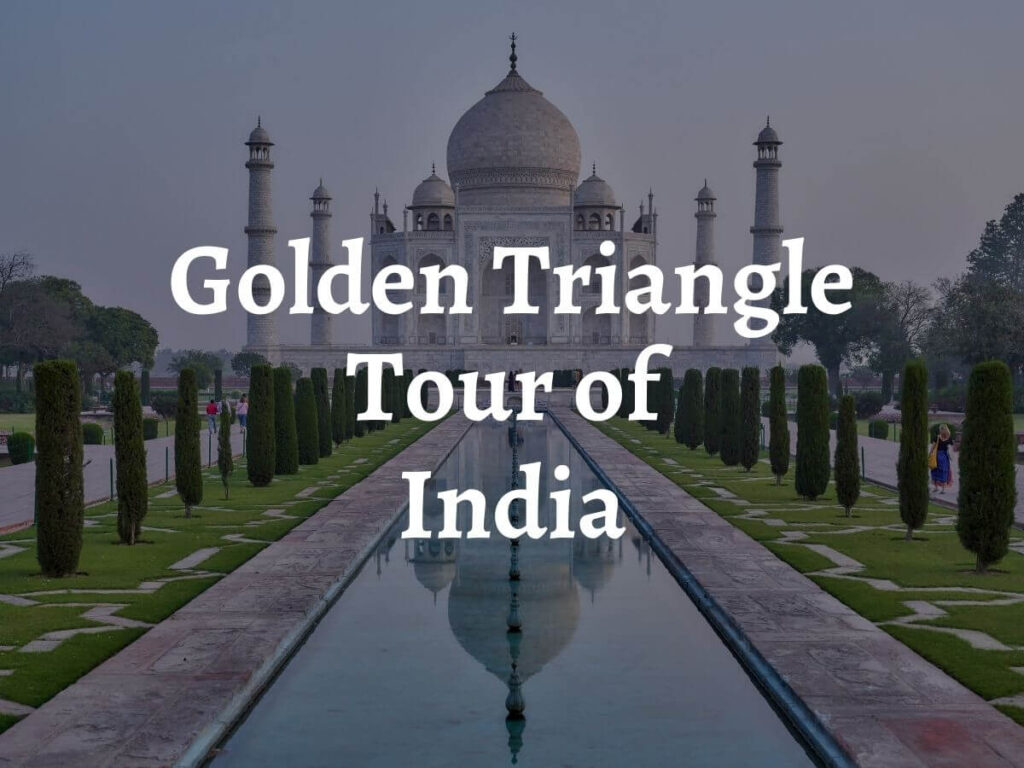
LUXURY TRAINS

LUXURY HOTELS
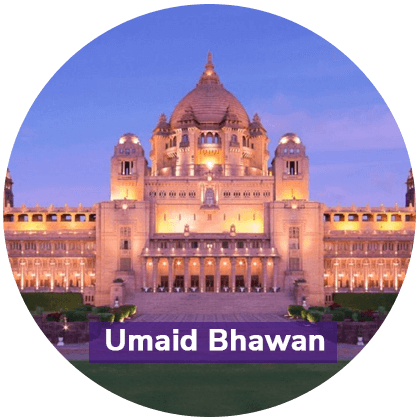
TRAVEL BLOGS
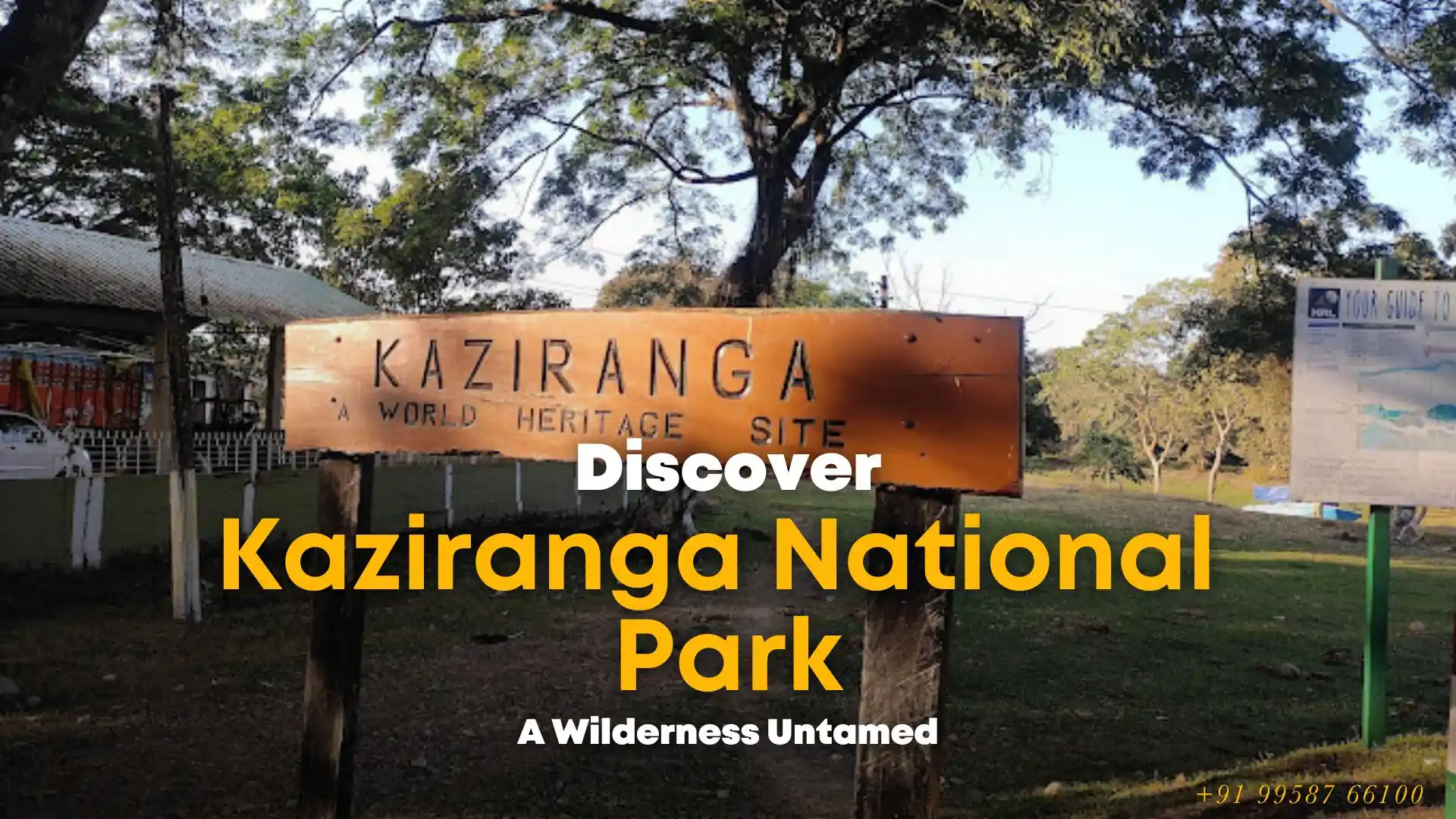
Discovering Kaziranga National Park: A Wilderness Untamed
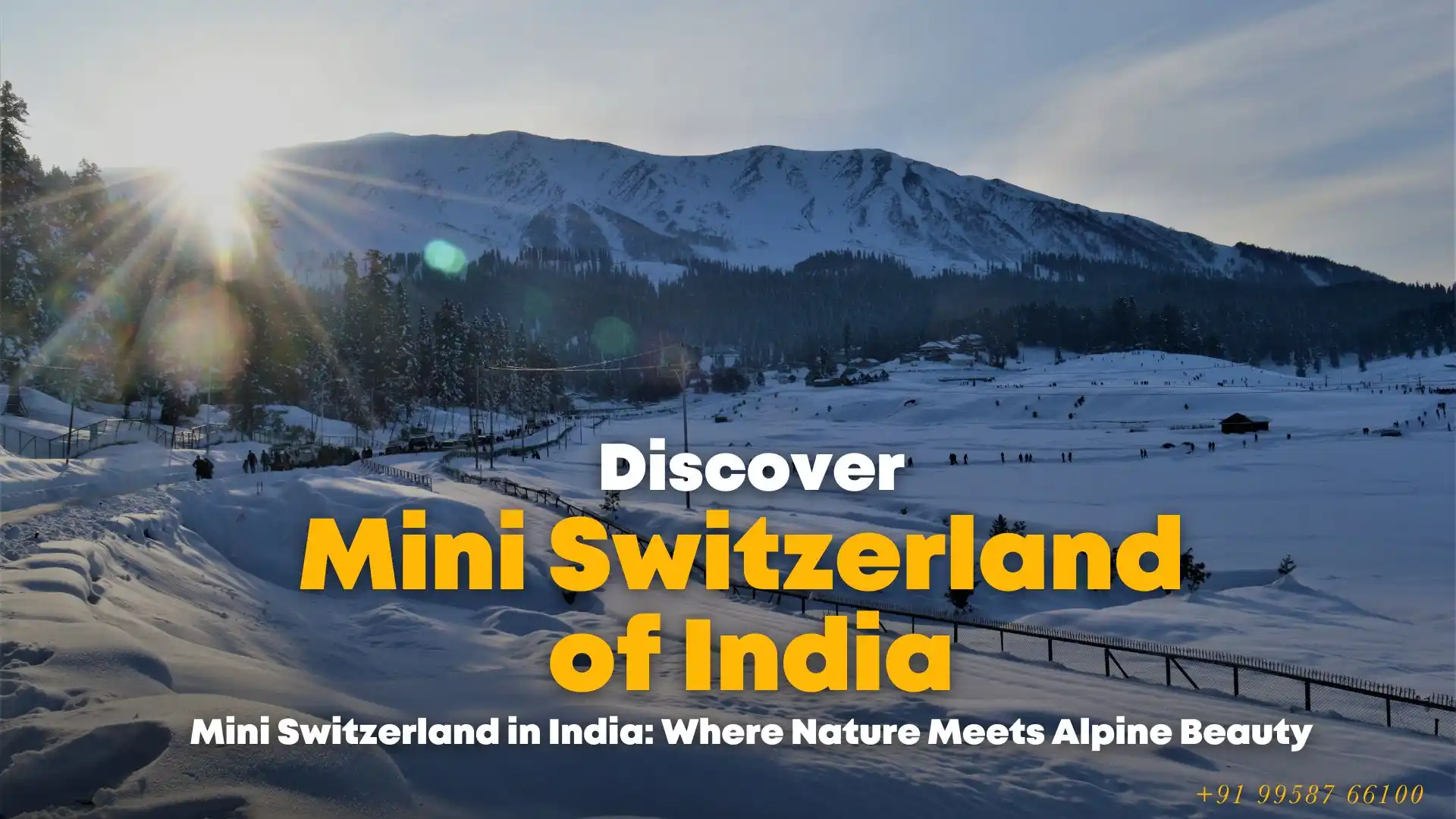
Mini Switzerland in India: Snow-Capped Mountains and Scenic Valley
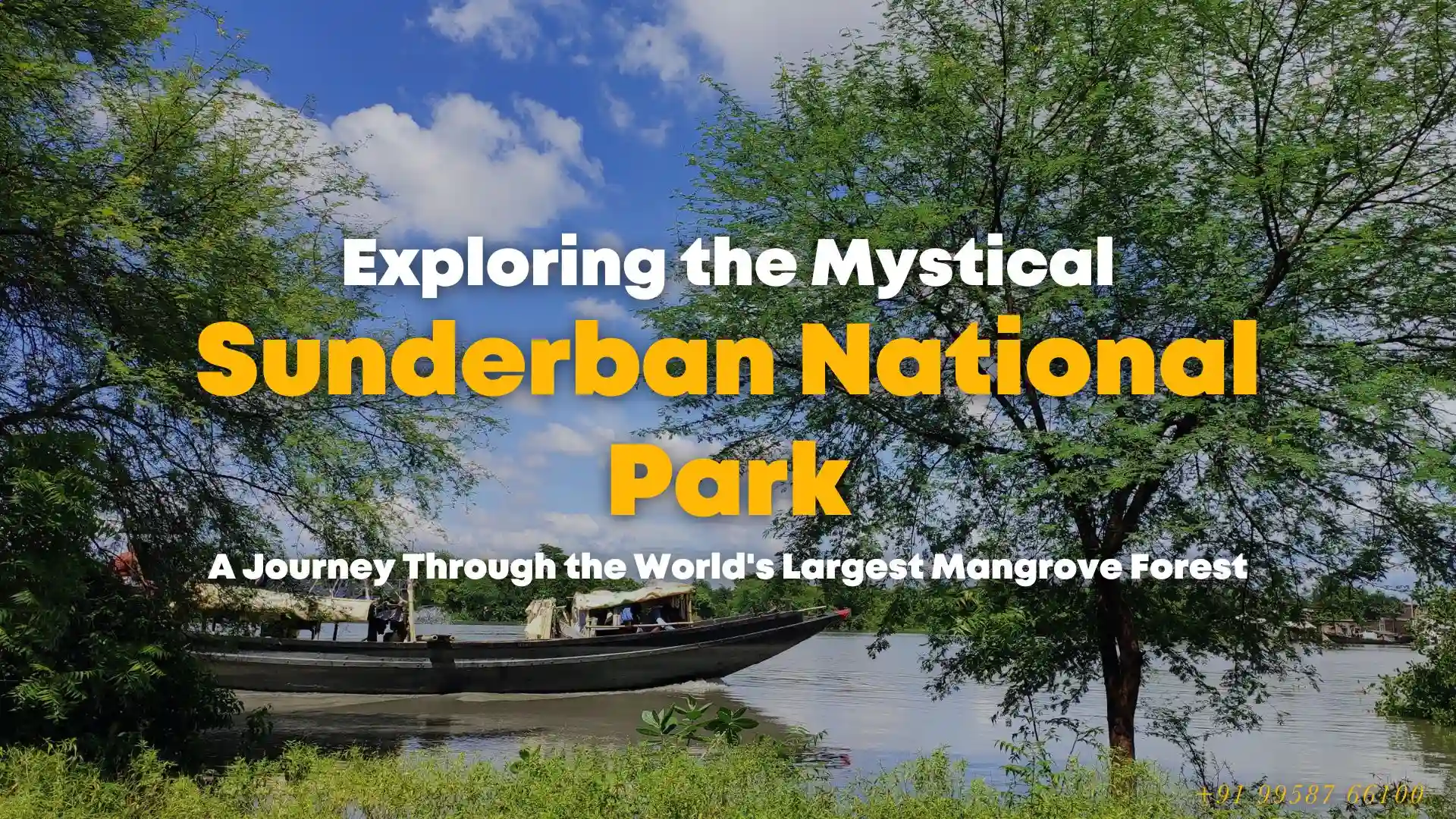
Exploring the Mystical Sunderban National Park
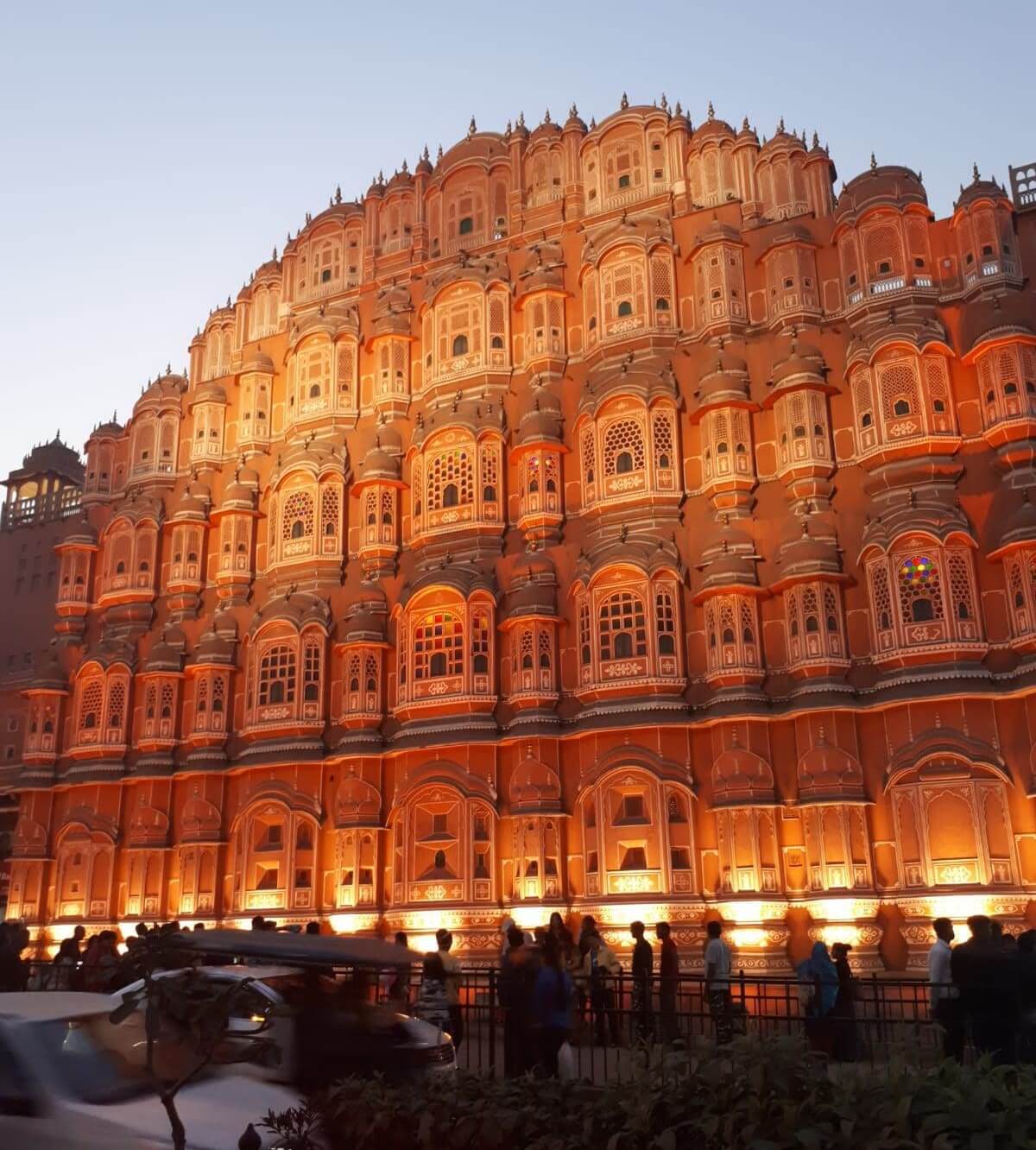
ABOUT INDIA
India is a country where culture resonates, tradition speaks, beauty entices, and variety fascinates. India’s religious, linguistic, and cultural diversity is unsurpassed. India is known for its rich history, many ethnicities, and enormous landscapes.
In the words of Mark Twain, “India is the cradle of the human race, the birthplace of human speech, the mother of history, the grandmother of legend and the great-grandmother of tradition.”
Whether you’re intrigued about India, looking for a tour package, or just hotels or transportation (flight/train/road), we’re here to help.
- Travel Advisories |
- Contact Us |
- MyTravelGov |
Find U.S. Embassies & Consulates
Travel.state.gov, congressional liaison, special issuance agency, u.s. passports, international travel, intercountry adoption, international parental child abduction, records and authentications, popular links, travel advisories, mytravelgov, stay connected, legal resources, legal information, info for u.s. law enforcement, replace or certify documents.
Before You Go
Learn About Your Destination
While Abroad
Emergencies
Share this page:
Travel Advisory July 23, 2024
India - level 2: exercise increased caution.
Updated to reflect information on the northeastern states.
Exercise increased caution in India due to crime and terrorism. Some areas have increased risk.
Do not travel to:
- The union territory of Jammu and Kashmir (except the eastern Ladakh region and its capital, Leh) due to terrorism and civil unrest .
- Within 10 km of the India-Pakistan border due to the potential for armed conflict .
- Portions of Central and East India due to terrorism.
- Manipur due to violence and crime .
Reconsider travel to:
- The northeastern states due to terrorism and violence .
Country Summary: Indian authorities report that rape is one of the fastest growing crimes in India. Violent crime, such as sexual assault, has happened at tourist sites and other locations.
Terrorists may attack with little or no warning. They target tourist locations, transportation hubs, markets/shopping malls, and government facilities.
The U.S. government has limited ability to provide emergency services to U.S. citizens in rural areas. These areas stretch from eastern Maharashtra and northern Telangana through western West Bengal. U.S. government employees must get special authorization to travel to these areas.
Read the country information page for additional information on travel to India.
Visit the CDC page for the latest Travel Health Information related to your travel.
If you decide to travel to India:
- Do not travel alone, particularly if you are a woman. Visit our website for Women Travelers .
- Review your personal security plans and remain alert to your surroundings.
- Enroll in the Smart Traveler Enrollment Program ( STEP ) to receive Alerts and make it easier to locate you in an emergency.
- Follow the Department of State on Facebook and Twitter .
- Review the Country Security Report for India.
- Prepare a contingency plan for emergency situations. Review the Traveler’s Checklist .
Union Territory of Jammu and Kashmir – Level 4: Do Not Travel
Terrorist attacks and violent civil unrest are possible in the union territory of Jammu and Kashmir. Do not travel to this state (with the exception of visits to the eastern Ladakh region and its capital, Leh). Violence happens sporadically in this area and is common along the Line of Control (LOC) between India and Pakistan. It also occurs in tourist spots in the Kashmir Valley: Srinagar, Gulmarg, and Pahalgam. The Indian government does not allow foreign tourists to visit certain areas along the LOC.
Visit our website for Travel to High-Risk Areas .
India-Pakistan Border – Level 4: Do Not Travel
India and Pakistan have a strong military presence on both sides of the border. The only official border crossing for non-citizens of India or Pakistan is in Punjab. It is between Attari, India, and Wagah, Pakistan. The border crossing is usually open, but check its current status before you travel. To enter Pakistan, you need a Pakistani visa. Only U.S. citizens residing in India may apply for a Pakistani visa in India. Otherwise , apply for a Pakistani visa in your home country before traveling to India
Portions of Central and East India – Level 4: Do Not Travel
Maoist extremist groups, or “Naxalites,” are active in a large area of India that spans from eastern Maharashtra and northern Telangana through western West Bengal. Attacks against officers of the Indian government continue to occur sporadically in the rural parts of Chhattisgarh and Jharkhand that border with Telangana, Andhra Pradesh, Maharashtra, Madhya Pradesh, Uttar Pradesh, Bihar, West Bengal, and Odisha. Southwest areas of Odisha are also affected. The Naxalites have carried out many terrorist attacks, targeting local police, paramilitary forces, and government officials.
Due to the fluid nature of the threat, U.S. government employees are required to obtain permission prior to traveling to most areas in the states of Bihar, Jharkhand, Chhattisgarh, West Bengal, Meghalaya, and Odisha. Permission is not required if employees are traveling only to the capital cities of these states.
U.S. government employees also need approval to travel to the eastern region of Maharashtra and the eastern region of Madhya Pradesh
Visit our website for Travel to High-Risk Areas .
Manipur - Level 4: Do Not Travel
Do not travel to Manipur due to the threat of violence and crime. Ongoing ethnic-based civil conflict has resulted in reports of extensive violence and community displacement. Attacks against Indian government targets occur on a regular basis. U.S. government employees traveling in India require prior approval before visiting Manipur.
Visit our website for Travel to High-Risk Areas .
Northeastern States – Level 3: Reconsider Travel
Ethnic insurgent groups occasionally commit acts of violence in parts of the northeast. These incidents include bombings of buses, trains, rail lines, and markets. There have been no recent reports of violence in Assam, Nagaland, Arunachal Pradesh, Mizoram, Sikkim, or Tripura.
U.S. government employees traveling in India require prior approval before visiting the states of Sikkim, and Arunachal Pradesh, as well as when visiting any areas outside of the capital cities of Assam, Mizoram, Nagaland, Meghalaya, and Tripura.
Embassy Messages
View Alerts and Messages Archive
Quick Facts
Must be valid for six months beyond date of visa application to obtain a visa.
Two pages required.
Yes. Travelers must enter with a visa in their passport. The visa is valid for 10 years for U.S. citizens. Or they can use an e-tourist visa, which varies in validity. Note that the Indian authorities issue visas with dates in the DD/MM/YY format.
Travelers arriving from an infected area must have a yellow fever vaccination. Others are suggested.
You must declare currency over USD $5,000 at entry. Please check with the Indian Embassy in Washington, D.C. if you are planning to carry a large amount of currency or gold into India.
Check local law for rules on reporting large amounts of foreign currency and Indian rupees when leaving.
Embassies and Consulates
U.s. embassy new delhi.
Shantipath, Chanakyapuri New Delhi - 110021 India Telephone: +(91) (11) 2419-8000 Emergency After-Hours Telephone: +(91) (11) 2419-8000 Fax: +(91) (11) 2419-0017 [email protected]
The U.S. Embassy, New Delhi serves U.S. citizens in the Indian states of Haryana, Himachal Pradesh, Punjab, Rajasthan, Uttarakhand, and Uttar Pradesh, the union territories of Chandigarh, Delhi, Jammu and Kashmir, and Ladakh, and the country of Bhutan.
U.S. Consulate General Mumbai C-49, G-Block, Bandra Kurla Complex Bandra East, Mumbai 400051 India Telephone: +(91) (22) 2672-4000 Emergency After-Hours Telephone: +(91) (22) 2672-4000 If you are calling from within India, but outside Mumbai, first dial 022. Fax: 91-(0)22-2672-4786 [email protected]
The Consulate General in Mumbai provides consular services for the states of Goa, Gujarat, Chhattisgarh, Madhya Pradesh, and Maharashtra, and the union territory of Diu and Daman, and Dadra and Nagar Haveli.
U.S. Consulate General Kolkata 5/1 Ho Chi Minh Sarani Kolkata - 700 071, West Bengal, India Telephone: +(91) (33) 3984-2400 Emergency After-Hours Telephone: +(91) (33) 3984-2400 then dial "0" Fax: +(91) (33) 2282-2335 [email protected]
The United States Consulate General in Kolkata provides consular services for the states of Bihar, West Bengal, Jharkhand, Nagaland, Mizoram, Manipur, Meghalaya, Arunachal Pradesh, Sikkim, Tripura, and Assam. .
U.S. Consulate General Chennai 220 Anna Salai at Gemini Circle Chennai, India 600006 Telephone: +(91) (44) 2857-4000 Emergency After-Hours Telephone: (0) 44-2857-4000. Ask for American Citizen Services. (Within India, but outside Chennai, first dial 044. From the United States, first dial 011-(91) (44)) Fax: +(91) (044) 2811-2020 [email protected]
The Consulate General in Chennai provides consular services for the states of Tamil Nadu, Karnataka, Kerala, and the Union Territories of Andaman and Nicobar Islands, Pondicherry, and the Lakshwadeep Islands.
U.S. Consulate General Hyderabad Survey No. 115/1, Financial District, Nanakramguda Hyderabad, Telangana, 500032 Telephone:+(91) (40) 6932 8000 Emergency After-Hours Telephone: 4033-8300 and ask for American Citizen Services. (If calling from within India, but outside Hyderabad, first dial 040. From the United States, first dial 011-(91) (40)) Fax: 4033-8306 [email protected]
The Consulate General in Hyderabad provides services to U.S. citizens in the Indian states of Andhra Pradesh, Telangana, and Odisha.
Destination Description
See the Department of State’s Fact Sheet on India for information on U.S.-India relations.
Entry, Exit and Visa Requirements
All U.S. citizens need a valid passport as well as a valid Indian visa or an Overseas Citizen of India (OCI) card to enter and exit India for any purpose. India may deny entry to travelers without valid documents or the correct type of visa. Indian visa rules and instructions change often. They often do so with little warning. Travelers should check the website of the Indian Embassy in Washington D.C. before any travel to India to review the most current information. The U.S. Embassy and Consulates General in India cannot assist you if you arrive without proper documentation.
U.S. citizens seeking to enter India solely for tourist purposes for stays of less than 60 days may apply for an eVisa at least four days before their arrival. Please visit the Indian government's website for electronic travel authorization for more information and to submit an application visit the Bureau of Immigration’s website.
U.S. citizens seeking to enter India as a tourist for longer than 60 days or for any other purpose must apply for a visa from an Indian embassy or consulate. The Government of India has appointed VFS Global to assist with visa services for individuals in the United States. Applicants may apply for Indian visas through the application link . Please exercise caution and check the correct website and as there are many fake webpages that will gather your personal information.
You can submit Diplomatic and Official visa applications directly to the Indian Embassy and Consulates. All U.S. government employees traveling on official orders, including military personnel, must get country clearance for travel to India. Once you have received your visa, check it carefully to ensure that the type of visa, validity dates, and number of entries is appropriate for your travel plans.
Keep copies of your U.S. passport data page, as well as the pages containing the Indian visa and Indian immigration stamps, with you at all times. Consider saving these documents to your mobile phone in case of emergency. If your passport is lost or stolen, copies will help you apply for a replacement passport and an exit permit from the Indian government. Replacing a lost visa, which is required to exit the country, may take several business days.
U.S. citizens of Pakistani origin or descent are subject to administrative processing and should expect additional delays when applying for Indian visas.
Foreign citizens who visit India to study, do research, work, or act as missionaries, as well as all travelers and residents planning to stay more than 180 days, are required to register their visit or residency within 14 days of arrival with the Foreigners Regional Registration Office (FRRO) closest to where they will be staying, in addition to having the appropriate visa when they enter India. Similarly, if you are traveling to India to give birth, you must register your newborn’s birth within 14 days with the FRRO office. Failure to do so will result in fines, fees, and penalties. The FRRO has offices in New Delhi, Mumbai, Chennai, Hyderabad, Kolkata, Bengaluru (Bangalore), Lucknow, Calicut, Goa, Cochin, Trivandrum, and Amritsar. District Superintendents of Police serve as Foreigners Registration Officers (FROs) in all other places. We recommend all U.S. citizens review the entry requirements described on the Frequently Asked Question (FAQ) section on the Indian Bureau of Immigration website.
If you overstay your Indian visa or break Indian visa rules, you may need clearance from the Ministry of Home Affairs to leave. In general, authorities will fine you and, in some cases, may even jail you for months. Visa violators seeking an exit permit must visit the Foreigners Regional Registration Office portal to submit the application and pay any levied fines. Processing an exit permit can take up to 90 days in these cases. Decisions will be made case by case.
Possession of a satellite phone is strictly prohibited in India and may lead to detention or arrest.
For the most current information on entry and exit requirements, please contact the Embassy of India’s Consular wing at 2536 Massachusetts Avenue NW, Washington, DC 20008, telephone (202) 939-9806 or the Indian Consulates in Atlanta , Chicago , Houston , New York , or San Francisco . Outside the United States, you should inquire at the nearest Indian embassy or consulate.
General information regarding Indian visa and immigration rules, including the addresses and telephone numbers for the FRRO offices, can be found at the Indian Ministry of Home Affairs Bureau of Immigration website.
HIV/AIDS RESTRICTIONS: There are no disclosure requirements or restrictions for HIV/AIDS patients who enter India on a tourist visa. Disclosure regarding HIV/AIDS is required of anyone seeking a resident permit in India. Foreign residents found to be suffering from HIV/AIDS will be deported. Please verify this information with the Embassy of India before you travel.
Find information on dual nationality , prevention of international child abduction and customs regulations on our websites.
Safety and Security
U.S. citizens should always practice good personal security and situational awareness. Be aware of your surroundings. This includes local customs and etiquette. Keep a low profile. Monitor local news reports, vary routes and times in carrying out daily activities, and consider the level of security present when visiting public places, including religious sites, and when choosing hotels, restaurants, and entertainment and recreation venues.
India intermittently experiences terrorist and insurgent activities which may affect U.S. citizens directly or indirectly. Some U.S.-designated terrorist groups are active in India, including Jaish-e-Mohammed and Lashkar-e Tayyiba. The U.S. government occasionally receives information regarding possible terrorist attacks that could take place in India, monitors such information to determine credibility, and advises U.S. citizens accordingly. Enroll in the Smart Traveler Enrollment Program (STEP) to receive messages from the Embassy automatically.
Past attacks have targeted public places, including some frequented by Westerners, such as luxury and other hotels, trains, train stations, markets, cinemas, mosques, and restaurants in large urban areas. Attacks have taken place during the busy evening hours in markets and other crowded places but could occur at any time. Alerts are usually more frequent around major holidays. The Maoists (also known as “Naxalites”) are the most active insurgent group in India. The Naxalites typically attack Indian government officials, but have also derailed trains, targeted other government buildings such as police stations, and conducted other criminal activity.
Demonstrations and general strikes, or “bandh,” often cause major inconvenience and unrest. These strikes can result in the stoppage of all transportation and tourist-related services, at times for 24 hours or more. U.S. citizens caught in such a strike may find they are unable to make flight and rail connections, as local transportation can be severely limited. Local media generally give an idea of the length and geographical location of the strike. You are urged to obey any imposed curfews and travel restrictions and avoid demonstrations and rallies as they have the potential for violence, especially immediately preceding and following political rallies, elections, and religious festivals (particularly when Hindu and Muslim festivals coincide). Tensions between castes and religious groups can also result in disruptions and violence.
There are active "anti-conversion" laws in some Indian states, and acts of conversion sometimes elicit violent reactions from Hindu extremists. Foreigners suspected of proselytizing Hindus have been attacked and killed in conservative, rural areas in India in years past. In some cases, demonstrators specifically block roads near popular tourist sites and disrupt train operations in order to gain the attention of Indian authorities; occasionally vehicles transporting tourists are attacked in these incidents. You should monitor local television, print and social media, and Mission India’s American Citizens Services Facebook page
Swimming: You should exercise caution if you intend to swim in open waters along the Indian coastline, particularly during the monsoon season. Every year, people in Goa, Mumbai, Puri (Odisha), off the Eastern Coast in the Bay of Bengal, and other areas drown due to strong undertows. It is important to heed warnings posted at beaches and to avoid swimming in the ocean during the monsoon season. Several years ago, there were reports of fatal crocodile attacks in the Andaman Islands. Trained lifeguards are very rare along beaches.
Wildlife Safaris: Many tour operators and lodges advertise structured, safe excursions into parks and other wildlife viewing areas for close observation of flora and fauna. However, safety standards and training vary, and it is advisable to ascertain whether operators are trained and licensed. Even animals marketed as “tame” should be respected as wild and extremely dangerous. Keep a safe distance from animals at all times, remaining in vehicles or other protected enclosures when venturing into game parks or safaris.
Trekking: Trekking expeditions should be limited to routes identified for this purpose by local authorities. Use only registered trekking agencies, porters, and guides, suspend trekking after dark, camp at designated camping places, and travel in groups rather than individually. Altitudes in popular trekking spots can exceed 25,000 feet (7,620 m); please ensure you are fit to trek at these altitudes and carry sufficient medical insurance that includes medical evacuation coverage.
Train Travel: India has the third largest rail network in the world, and train travel in India is generally safe. Nevertheless, accidents and on-board fires are sometimes caused by aging infrastructure, poorly maintained equipment, overcrowding, and operator errors. Train accidents and fires have resulted in death and serious injury of passengers.
Areas of Instability: Jammu & Kashmir: The Department of State recommends that you do not travel to the union territory of Jammu & Kashmir because of the potential for terrorist incidents as well as violent public unrest. A number of terrorist groups operate in the territory targeting security forces, particularly along the Line of Control (LOC) separating Indian and Pakistani-controlled Kashmir, and those stationed in primary tourist destinations in the Kashmir Valley: Srinagar, Gulmarg, and Pahalgam. Foreigners are particularly visible, vulnerable, and at risk. In the past, serious communal violence left the territory mostly paralyzed due to massive strikes and business shutdowns, and U.S. citizens have had to be evacuated by local police. The Indian government prohibits foreign tourists from visiting certain areas along the LOC (see the section on Restricted Areas, below) and may require a travel permit to enter this area.
India-Pakistan Border: The Department of State recommends that you do not travel to areas within ten kilometers of the border between India and Pakistan. Both India and Pakistan maintain a strong military presence on both sides of the border. The only official India-Pakistan border crossing point for persons who are not citizens of India or Pakistan is in the state of Punjab between Atari, India, and Wagah, Pakistan. The border crossing is usually open, but you are advised to confirm the current status of the border crossing prior to commencing travel. A Pakistani visa is required to enter Pakistan. Only U.S. citizens residing in India may apply for a Pakistani visa in India. Otherwise, you should apply for a Pakistani visa in your country of residence before traveling to India.
Both India and Pakistan claim an area of the Karakoram Mountain range that includes the Siachen glacier. Travel or mountain climbing in this area is highly dangerous. The disputed area includes the following peaks: Rimo Peak; Apsarasas I, II, and III; Tegam Kangri I, II and III; Suingri Kangri; Ghiant I and II; Indira Col; and Sia Kangri. Check with the U.S. Embassy in New Delhi for information on current conditions.
Northeastern States: Incidents of violence by ethnic insurgent groups, including bombings of buses, trains, rail lines, and markets, occur sporadically in the northeast. While U.S. citizens have not been specifically targeted, it is possible that you could be affected as a bystander. If you travel to the northeast, you should avoid travel by train at night, travel outside major cities at night, and crowds. U.S. government employees at the U.S. Embassy and Consulates in India are prohibited from traveling to certain areas in the states of Assam, Arunachal Pradesh, Sikkim, Mizoram, Nagaland, Meghalaya, Tripura, and Manipur without permission from the U.S. Consulate General in Kolkata. Restricted Area Permits are required for foreigners to visit certain Northeastern states (see the section on Restricted Areas, below.) Contact the U.S. Consulate General in Kolkata for information on current conditions.
East Central and Southern India: Maoist extremist groups, or “Naxalites,” are active in East Central India, primarily in rural areas. The Naxalites have a long history of conflict with state and national authorities, including frequent terrorist attacks on local police, paramilitary forces, and government officials, and are responsible for more attacks in the country than any other organization through an ongoing campaign of violence and intimidation. Naxalites have not specifically targeted U.S. citizens but have attacked symbolic targets that have included Western companies and rail lines. While Naxalite violence does not normally occur in places frequented by foreigners, there is a risk that visitors could become victims of violence.
Naxalites are active in a large swath of India from eastern Maharashtra and northern Telangana through western West Bengal, particularly in rural parts of Chhattisgarh and Jharkhand and on the borders of Telangana, Andhra Pradesh, Maharashtra, Madhya Pradesh, Uttar Pradesh, Bihar, West Bengal, and Odisha. Due to the fluid nature of the threat, all U.S. government travelers to states with Naxalite activity must receive authorization from the U.S. Consulate responsible for the area to be visited, unless they are only visiting capital cities.
Restricted/Protected areas: Certain states or portions of states require Restricted Area Permits. These include:
- The state of Arunachal Pradesh
- Portions of the state of Sikkim
- Portions of the state of Himachal Pradesh near the Chinese border
- Portions of the state of Uttarakhand (Uttaranchal) near the Chinese border
- Portions of the state of Rajasthan near the Pakistani border
- Portions of the union territory of Jammu & Kashmir near the Line of Control with Pakistan and certain portions of the union territory of Ladakh
- The union territory of Andaman & Nicobar Islands
- The union territory of the Laccadives Islands (Lakshadweep)
- Portions of the state of Manipur
- Portions of the state of Mizoram
- Portions of the state of Nagaland
More information about travel to/in restricted/protected areas can be found from India’s Bureau of Immigration .
Restricted Area Permits are available outside India at Indian embassies and consulates abroad, or in India from the Ministry of Home Affairs (Foreigners Division) at Jaisalmer House, 26 Man Singh Road, New Delhi. The states of Arunachal Pradesh and Sikkim maintain official guesthouses in New Delhi, which can also issue Restricted Area Permits for their respective states for certain travelers. While visiting Mamallapuram (Mahabalipuram) in Tamil Nadu, you should be aware that the Indira Gandhi Atomic Research Center in Kalpakkam is located just south of the site and is not clearly marked as a restricted and dangerous area.
For the latest security information, travelers should enroll in STEP to receive updated security information and regularly monitor travel information available from the U.S. Embassy in New Delhi as well as the U.S. Consulates General in Mumbai , Chennai , Hyderabad , and Kolkata .
Crime: Violent crime, especially directed against foreigners, has traditionally been uncommon. Petty crime, especially theft of personal property (including U.S. passports), is common, particularly on trains or buses, at airports, and in major tourist areas. Pickpockets can be very skilled and travelers have reported having their bags snatched, purse-straps cut, or the bottom of their purses slit without their knowledge. If traveling by train, lock your sleeping compartments and take your valuables with you when leaving your berth. If you travel by air, be careful with your bags in the arrival and departure areas outside airports. Be cautious about displaying cash or expensive items to reduce the chance of being a target for robbery or other crime, and be aware of your surroundings when you use ATMs. Scammers have used ATM card scams to clone credit card details and withdraw money.
Individuals have reported cases of sexual assault, including rape, against U.S. citizens traveling throughout India.
The U.S. government cautions citizens, especially women, not to travel alone in India. Please observe stringent security precautions. When traveling without known and trustworthy companions, use public transport specifically designated for “women-only” travelers, which is a free service offered by the Indian government in many metropolitan cities including Delhi and Hyderabad. Please restrict evening entertainment to well-known venues and avoid isolated areas when traveling alone at any time of the day. Keep your hotel room number confidential and make sure hotel room doors have chains, deadlocks, and peep holes. Travel with groups of friends rather than alone. In addition, only hire reliable cars and drivers and avoid traveling alone in hired taxis, especially at night. Use taxis from hotels and pre-paid taxis at airports rather than hailing them on the street. If you encounter threatening situations, call “100” for police assistance (“112” from mobile phones). If you use app-based services like “Uber” or “Ola” share your ride information with a friend.
Travelers in India are advised to respect local dress and customs. Indian women typically wear conservative everyday dress. This is the norm throughout the country, and even more so in rural areas. They wear clothing that covers their legs and shoulders. Exceptions are vacation resorts catering to foreign clientele and some neighborhoods of major cities like New Delhi and Mumbai. Western women, especially those of African descent, continue to report incidents of verbal and physical harassment by individuals and groups of men. Known locally as “Eve-teasing,” these incidents of sexual harassment can be quite frightening and quickly cross the line from verbal to physical. Sexual harassment can occur anytime or anywhere, but most frequently has happened in crowded areas such as in marketplaces, train stations, buses, and public streets. The harassment can range from sexually suggestive or lewd comments to catcalls to outright groping.
The Government of India has focused more on addressing gender-based violence. One outcome has been more reports of sexual assault nationwide. Indian authorities report rape is one of India's fastest growing crimes.
If you find yourself in a life-threatening situation, you should call the police immediately and follow up with a call to the nearest U.S. Embassy or Consulate. We can sometimes connect you with an Indian non-governmental organization that may be able to provide assistance.
Please review our travel tips for Women Travelers .
If you are victimized overseas, you may be entitled to receive compensation for counseling and/or other services such as relocation back to the United States. For further information, visit the U.S. Department of Justice page for violence against women.
Scams are common at major airports, train stations, popular restaurants, and tourist sites. Scam artists prey on visitors by creating distractions. Be careful of taxi drivers and others. This includes train porters. They solicit travelers with "come-on" offers of cheap transportation and/or hotels. Travelers who accept such offers are often the victims of scams. These include offers to help with "necessary" transfers to the domestic airport, overpriced hotel rooms, unwanted "tours," unwelcome "purchases," long cab rides, and even threats when the tourists decline to pay. Tourists have reported being lured and extorted for money in the face of threats of violence against the traveler and his/her family members. Be careful when hiring transportation and guides. Use only well-known travel agents to book trips.
Some vendors sell carpets, jewelry, and gemstones. These items may be expensive and not of the promised quality. Deal only with reputable businesses and do not hand over your credit cards or money unless you are certain that goods being shipped are the goods you purchased. If a deal sounds too good to be true, it is best avoided. Most Indian states have official tourism bureaus set up to handle complaints. Do not agree to transport any goods on behalf of strangers in exchange for money.
India-based criminals use the internet to extort money from victims abroad. In a common scam, the victim develops a close romantic relationship with an alleged U.S. citizen they meet online. When the “friend” travels to India, a series of accidents occur and the victim begins to receive requests for financial assistance, sometimes through an intermediary. In fact, the U.S. citizen “friend” does not exist; they are only online personas used by criminal networks. Victims have been defrauded of thousands of dollars in these schemes. Do not send money to anyone you have not met in person and carefully read the Department of State’s advice on international financial scams .
In another common scam, family members in the United States, especially older people, are asked for money. The scammers claim to be grandchildren or relatives who have been arrested or are without money to return home. Do not send money without contacting the U.S. Embassy or Consulate General to confirm the other party’s situation. You can also call our Office of Overseas Citizens Services at 888-407-4747 (from overseas: 202-501-4444). Review our information on emergency assistance to Americans abroad.
U.S. citizens have had problems with business partners, usually involving property investments. You may wish to seek professional legal advice in reviewing any contracts for business or services offered in India. The U.S. Embassy and consulates cannot give legal advice. They also cannot help U.S. citizens with Indian courts on civil or criminal matters. A list of local attorneys is available on the Embassy and Consulates General websites .
See the Department of State and the FBI pages for more information on scams.
Don’t buy counterfeit and pirated goods, even if they are widely available. Not only are the bootlegs illegal in the United States, if you purchase them you may also be breaking local law.
Victims of Crime: U.S. citizen victims of sexual assault should first contact the local police, then inform the U.S. Embassy or local Consulate.
Report crimes to the local police by calling “100” or “112” from a mobile phone.
Remember that local authorities are responsible for investigating and prosecuting the crime.
See our webpage on help for U.S. victims of crime overseas .
- help you find appropriate medical care
- assist you in reporting a crime to the police
- contact relatives or friends with your written consent
- explain the local criminal justice process in general terms
- provide a list of local attorneys
- provide information on victims’ compensation programs in the U.S.
- provide an emergency loan for repatriation to the United States and/or limited medical support in cases of destitution
- help you find accommodation and arrange flights home
- replace a stolen or lost passport
You should ask for a copy of the police report, known as a “First Information Report” (FIR), from local police when you report an incident. Local authorities generally can't act without a police report.
If your passport is stolen, report the theft or loss right away. Report it to the police in the place where your passport was stolen. You need an FIR to get an exit visa to leave India. The Indian government requires it if the lost passport had your Indian visa. Although the Embassy or Consulate General is able to replace a stolen or lost passport, the Ministry of Home Affairs and the Foreigners Regional Registration Office (FRRO) are responsible for approving an exit permit. This process usually takes three to four working days but can take longer.
In cases of sexual assault or rape, the Embassy or Consulates General can provide a list of local doctors and hospitals, if needed, to discuss treatment and prevention options for diseases and pregnancy. You should be aware that for evidence of an assault to be submitted in a court case, Indian authorities require that the medical exam be completed at a government hospital. Therefore, if a victim goes to a private hospital for treatment, the hospital will refer them to a government hospital for this aspect of the medical process.
India has many resources for victims of rape and sexual assault. The specific toll-free Women’s Helpline Service number in Delhi is 1091; in Mumbai it is 103; in Kolkata, 1090; in Chennai, 1091 or 2345-2365; and in Hyderabad 1098.
The local equivalent to the “911” emergency line in India is “100.” An additional emergency number, “112,” can be accessed from mobile phones.
Please see our information for victims of crime , including possible victim compensation programs in the United States.
Domestic Violence: U.S. citizen victims of domestic violence may contact the Embassy or Consulates for assistance.
Tourism: The tourism industry is unevenly regulated, and safety inspections for equipment and facilities do not commonly occur. Hazardous areas/activities are not always identified with appropriate signage, and staff may not be trained or certified either by the host government or by recognized authorities in the field. In the event of an injury, appropriate medical treatment is typically available only in/near major cities. First responders are generally unable to access areas outside of major cities and to provide urgent medical treatment. U.S. citizens are encouraged to purchase medical evacuation insurance. See our webpage for more information on insurance providers for overseas coverage.
Local Laws & Special Circumstances
Criminal Penalties: You are subject to local laws. You may face arrest, imprisonment, and/or deportation if you violate local laws, even unknowingly.
Furthermore, some activities are crimes under U.S. law and can be prosecuted in the U.S. regardless of whether they are allowed under local law. For examples, see our website on crimes against minors abroad and the Department of Justice website.
If police or prison officials arrest or detain you, immediately ask them to notify the U.S. Embassy. See our webpage for further information.
Alcohol: Each of India’s states has its own rules for buying and drinking alcohol. Legal drinking ages range from 18 to 25 and can vary by beverage type. Some states permit alcohol use for medicinal purposes only while others require you to hold a permit to buy, transport, or consume alcohol. Penalties for violation can be harsh.
Several U.S. citizens at Indian airports have been arrested for attempting to smuggle illegal drugs from India. Many claim that they did not realize they were carrying narcotics. Never transport or mail packages that do not belong to you and maintain direct control of your luggage at all times.
Beef and Cow Hide: Several states in India impose various types of prohibition on beef. In some rural areas, cow protection vigilantes have attacked people they suspected of selling or consuming beef, or possessing items made with cow hide.
SPECIAL CIRCUMSTANCES:
Dual Nationality: India does not permit its citizens to hold dual nationality. In 2006, India launched the "Overseas Citizens of India" (OCI) program, which does not grant Indian citizenship but is similar to a U.S. "green card" in that you can travel to and from India indefinitely, work in India, study in India, and own property in India (except for certain agricultural and plantation properties). If you are a U.S. citizen and obtain an OCI card you will not become a citizen of India; you will remain a citizen of the United States. An OCI card holder does not receive an Indian passport, cannot vote in Indian elections, and is not eligible for Indian government employment.
U.S. citizens of Indian descent can apply for OCI cards at the Indian Embassy in Washington or at the Indian Consulates in Chicago, New York, San Francisco, Atlanta, and Houston. Inside India, U.S. citizens can apply at the nearest FRRO office (please see “Entry/Exit Requirements” section above for more information on the FRRO). U.S. citizens must use a U.S. passport when traveling in and out of the United States.
Faith-based travelers and those participating in religious activities should refer to the Department of State's Report on International Religious Freedom. Indian law mandates that individuals engaging in religious proselytizing obtain a "missionary" visa. Immigration authorities have determined that engaging in certain activities, such as speaking at religious meetings open to the general public, could violate immigration law if the traveler does not possess a missionary visa. Foreigners with tourist visas who engage in missionary activity are subject to deportation and possible criminal prosecution. The states of Odisha, Chhattisgarh, Gujarat, Himachal Pradesh, Madhya Pradesh, and Arunachal Pradesh have legislation that regulates or places restrictions on conversion from one religion to another. If you plan to engage in missionary activity, you may want to seek legal advice to find out if Indian law permits the activities you plan to pursue.
Tourists should also mind restrictions and observances when planning to visit any religious establishment. These include Hindu temples, mosques, churches, and other sacred places to the local population. Many individual temples and mosques do not permit non-members to enter all or parts of the facilities, and may require the removal of shoes, the covering of the head, or have other specific requirements for appropriate attire.
Customs rules are strict. Before traveling to or from India, inspect all bags and clothes well. Make sure they do not contain banned items. Airport security officials have arrested or detained several U.S. citizens after discovering loose ammunition (including spent individual bullets and casings) or weapons in their luggage. If authorities find loose ammunition or bullets (including empty bullet shells used in souvenirs) on your person or in your bags, they will charge you with violating the Indian Arms Act, and may incarcerate or deport you from India.
Additionally, Indian authorities have arrested and prosecuted U.S. citizens for possessing satellite phones, which is strictly prohibited in India.
Indian customs authorities enforce strict regulations. They cover temporary importation into or export from India of items like antiquities, electronics, currency, ivory, gold objects, and other banned materials. You need permission from the Government of India to bring in restricted items, even if you are only transiting through India. If you do not comply with these regulations, you risk arrest or fine or both and confiscation of these items. If Indian law enforcement charges you with any legal violations, make sure to have an attorney review any document before signing it. The Government of India requires the registration of antique items with the local police along with a photograph of the item. It is advisable to contact the Embassy of India in Washington or one of India's consulates in the United States for specific information regarding customs requirements. More information is available from the Indian Central Board of Excise and Customs.
Indian customs authorities encourage the use of an ATA (Admission Temporaire/Temporary Admission) Carnet for the temporary admission of professional equipment, commercial samples, and/or goods for exhibitions and fair purposes. ATA Carnet Headquarters, located at the U.S. Council for International Business , 1212 Avenue of the Americas, New York, NY 10036, issues and guarantees the ATA Carnet in the United States. For additional information call (212) 354-4480, or email USCIB for details. Please see our section on Customs Information for more information.
Natural Disaster Threats: Parts of northern India are highly susceptible to earthquakes. Regions of highest risk, ranked 5 on a scale of 1 to 5, include areas around Srinagar, Himachal Pradesh, Rishikesh and Dehradun, the northern parts of Punjab, northwest Gujarat, northern Bihar, and the entire northeast. Ranked 4 (high damage risk) is an area that sweeps along the north through Jammu and Kashmir, Eastern Punjab, Haryana, Northern Uttar Pradesh, central Bihar and the northern parts of West Bengal. New Delhi is located in zone 4. Severe flooding is common in hilly and mountainous areas throughout India. Flooding in 2013 in Uttarakhand, Himachal Pradesh, Tamil Nadu and other areas left thousands of people presumed dead and temporarily stranded dozens of U.S. citizens.
Typhoons/cyclones and subsequent flooding are common along the Indian coasts, in particular the Eastern coastal states of Tamil Nadu, Andhra Pradesh, Odisha and West Bengal, and have at times resulted in massive loss of life. Tourists and residents in areas prone to these events should remain vigilant during severe weather, monitor local media for latest developments, and heed all municipal warnings. Residents in these areas should have contingency plans for loss of power and unavailability of goods and services, including supplies for multiple days after a severe weather event.
Accessibility: Individuals with disabilities may find accessibility and accommodation in India very different than what you find in the United States. Despite legislation that all public buildings and transport be accessible for disabled people, accessibility remains limited. One notable exception is the Delhi metro system, designed to be accessible to those with physical disabilities.
Students: See our Students Abroad page and FBI travel tips.
LGBTQI+ Travelers: The Supreme Court of India decriminalized same-sex relationships in 2018. Since then, state and union governments have been directed to develop reforms that protect the rights of lesbian, gay, bisexual, transgender, queer, and intersex (LGBTQI+) persons, including efforts to provide gender neutral bathrooms at schools and colleges and separate housing for gender-nonconforming and transgender persons in prison.
Although Indian law prohibits discrimination by state and nonstate actors based on sexual orientation, gender identity or expression, or sex characteristics, the government is inconsistent in implementing and enforcing these laws, and reports of widespread discrimination, harassment, threats, and violence against LGBTQI+ persons, particularly in rural areas or by local police, persist. See our LGBTQI+ Travel Information page and section 6 of our Human Rights report for further details.
For emergency services in India, dial 112 from a cell phone; from a land line, dial 100 for police, 102 for ambulance (108 in parts of South India), and 101 for fire.
Ambulances are not equipped with state-of-the-art medical equipment, and traffic does not yield to emergency vehicles. Injured or seriously ill travelers may prefer to take a taxi or private vehicle to the nearest major hospital rather than wait for an ambulance. Most hospitals require advance payment or confirmation of insurance prior to treatment. Payment practices vary, and credit cards are not routinely accepted for medical care.
Zika, dengue, malaria, measles, and other diseases are present in India. See the Center for Disease Control’s website for more information.
The quality of medical care in India varies considerably. Medical care in the major population centers approaches and occasionally meets Western standards, but adequate medical care is usually very limited or unavailable in rural areas.
We do not pay medical bills. Be aware that U.S. Medicare does not apply overseas.
Make sure your health insurance covers care overseas. Most care providers overseas only accept cash payments. See our webpage for more information on insurance providers for overseas coverage. Visit the U.S. Centers for Disease Control and Prevention for more information on type of insurance you should consider before you travel overseas.We strongly recommend supplemental insurance to cover medical evacuation.
If traveling with prescription medication, check with the government of India to ensure the medication is legal in India. Always carry your prescription medication in original packaging with your doctor’s prescription.
Pharmaceuticals: Exercise caution when purchasing medication overseas. Pharmaceuticals, both over the counter and requiring prescription in the United States, are often readily available for purchase with limited controls. Counterfeit medication is common and may prove to be ineffective, the wrong strength, or contain dangerous ingredients. When buying medication, consult with a medical professional and purchase from reputable establishments. Please visit the U.S. Center for Disease Control and Prevention website on counterfeit drugs for more information.
Water Quality: Water is a common vehicle for the transmission of disease. Impure drinking water can transmit serious diseases such as typhoid, cholera, hepatitis, and dysentery. You can make water safe for drinking by filtering/boiling, distilling, or using chemicals. Bottled water is generally safe for consumption. It is best to stick to the major brands. The water bottle seal or cap should be intact.
Vaccinations: Be up-to-date on all vaccinations recommended by the U.S. Centers for Disease Control and Prevention.
If you are arriving in India from Sub-Saharan Africa or other areas with yellow-fever risk, Indian health regulations require that you present evidence of vaccination against yellow fever. If you lack such proof, authorities may immediately deport you or detain you in the yellow-fever quarantine center for six days. If you travel through any part of sub-Saharan Africa, even for one day, health authorities advise you to carry proof of yellow fever immunization.
Dogs and bats create a high risk of rabies transmission in most of India. Health authorities recommend vaccination for all prolonged stays, especially for young children and travelers in rural areas. It is also recommended for shorter stays that involve occupational exposure, locations more than 24 hours from a reliable source of human rabies immune globulin and rabies vaccine for post-exposure treatment, adventure travelers, hikers, cave explorers, and backpackers. Monkeys also can transmit rabies and herpes B, among other diseases, to human victims. Avoid feeding monkeys. If bitten, you should immediately soak and scrub the bite for at least 15 minutes and seek urgent medical attention.
Influenza transmission occurs from November to April in areas north of the Tropic of Cancer (north India) and from June through November (the rainy season) in areas south of the Tropic of Cancer (south India), with a smaller peak from February through April; off-season transmission can also occur. All travelers are at risk. During the flu season, health authorities recommend that all travelers get the influenza vaccine.
Outbreaks of avian influenza (H5N1 virus) occur intermittently in eastern India, including West Bengal, Manipur, Sikkim, Andhra Pradesh, Telangana, and Assam.
Malaria risk depends on time of year and area the traveler is visiting. Please consult the CDC website for India for more information. Dengue fever presents significant risk in urban and rural areas. Health officials report the highest number of cases from July to December, with cases peaking from September to October. The CDC recommends taking daytime insect precautions, such as wearing long-sleeved shirts and mosquito repellent.
Tuberculosis is an increasingly serious health concern in India. Please visit the CDC website or more information.
Further health information:
- World Health Organization
- U.S. Centers for Disease Control and Prevention (CDC)
Air pollution is a significant problem in several major cities in India, and you should consult your doctor prior to travel and consider the impact seasonal smog and heavy particulate pollution may have on you. The air quality in India varies considerably and fluctuates with the seasons. It is typically at its worst in the winter. Anyone who travels where pollution levels are high is at risk. People at the greatest risk from particle pollution exposure include:
- Infants, children, and teens
- People over 65 years of age
- People with lung disease such as asthma and chronic obstructive pulmonary disease (COPD), which includes chronic bronchitis and emphysema
- People with heart disease or diabetes
- People who work or are active outdoors
Current air quality data can be found on the Department of State’s air quality page . The data on this site are updated hourly.
Rh-negative blood may be difficult to obtain as it is not common in Asia.
Medical Tourism: Medical tourism is a rapidly growing industry. Companies offering vacation packages bundled with medical consultations and financing options provide direct-to-consumer advertising over the internet. Such medical packages often claim to provide high quality care, but the quality of health care in India is highly variable. People seeking health care in India should understand that medical systems operate differently from those in the United States and are not subject to the same rules and regulations.
Anyone interested in traveling for medical purposes should consult with their local physician before traveling and refer to the information from the CDC . Persons traveling to India for medical purposes require the proper “medical” visa. Please check with the nearest Indian embassy or consulate for more information.
Despite reports of antibiotic-resistant bacteria in hospitals, in general travelers should not delay or avoid treatment for urgent or emergent medical situations. However, health tourists and other travelers who may be contemplating elective procedures in this country should carefully research individual hospital infection control practices.
Surrogacy: Commercial surrogacy is illegal for foreigners in India, subject to complex local regulation. For additional information, visit the Government of India’s official information on foreigner surrogacy .
The U.S. Embassy and Consulates General in India maintain lists of local doctors and hospitals, all of which are published on their respective websites under "U.S. Citizen Services." We cannot endorse or recommend any specific medical provider or clinic.
Travel and Transportation
Road Conditions and Safety: Travel by road in India is dangerous. India leads the world in traffic-related deaths and a number of U.S. citizens have suffered fatal traffic accidents in recent years. You should exercise extreme caution when crossing streets, even in marked pedestrian areas, and try to use only cars that have seatbelts. Seatbelts are not common in three-wheel taxis (autos) and in back seats of taxis and rideshare vehicles. Helmets should always be worn on motorcycles and bicycles. Travel at night is particularly hazardous.
On Indian roads, the safest driving policy is always to assume that other drivers will not respond to a traffic situation in the same way you would in the United States, including the use of driving lanes. Buses and trucks often run red lights and merge directly into traffic at yield points and traffic circles. Cars, autos, bicycles, and pedestrians behave only slightly more cautiously. Use your horn or flash your headlights frequently to announce your presence. It is both customary and wise.
Inside and outside major cities, roads are often poorly maintained and congested. Even main roads frequently have only two lanes, with poor visibility and inadequate warning markers. On the few divided highways one can expect to meet local transportation traveling in the wrong direction, often without lights. Heavy traffic is the norm and includes (but is not limited to) overloaded trucks and buses, scooters, pedestrians, bullock and camel carts, horse or elephant riders en route to weddings, bicycles, and free-roaming livestock.
Public Transportation: Buses, patronized by hundreds of millions of Indians, are convenient in that they serve almost every city of any size. However, in some areas, they are often driven fast, recklessly, and without consideration for the rules of the road. Accidents are common.
Traffic Laws: Traffic in India moves on the left. It is important to be alert while crossing streets and intersections, especially after dark as traffic is coming in the "wrong" direction. Travelers should remember to use seatbelts in both rear and front seats where available, and to ask their drivers to maintain a safe speed.
In order to drive in India, you must have either a valid Indian driver’s license or a valid international driver’s license. Because of difficult road and traffic conditions, you may wish to consider hiring a local driver. Your U.S. driver’s license will not work.
If a driver hits a pedestrian or a cow, the vehicle and its occupants are at risk of being attacked by passersby. Such attacks pose significant risk of injury or death to the vehicle's occupants or risk of incineration of the vehicle. It could be unsafe to remain at the scene of an accident of this nature, and drivers may instead wish to seek out the nearest police station. Protestors often use road blockage as a means of publicizing their grievances, causing severe inconvenience to travelers. Visitors should monitor local news reports for any reports of road disturbances.
Please refer to our Road Safety page for more information.
Emergency Numbers: The following emergency numbers work in New Delhi, Mumbai, Chennai, Hyderabad, and Kolkata:
- National Emergency 112
- Police 100
- Fire Brigade 101
- Ambulance 102
AVIATION SAFETY OVERSIGHT: The U.S. Federal Aviation Administration (FAA) has assessed the Government of India’s Civil Aviation Authority as being in compliance with International Civil Aviation Organization (ICAO) aviation safety standards for oversight of India’s air carrier operations. Further information may be found on the FAA’s Safety Management page . Travelers are urged to use caution while booking private helicopters for travel, especially in the northeast.
For additional travel information
- Enroll in the Smart Traveler Enrollment Program (STEP) to receive security messages and make it easier to locate you in an emergency.
- Call us in Washington, D.C. at 1-888-407-4747 (toll-free in the United States and Canada) or 1-202-501-4444 (from all other countries) from 8:00 a.m. to 8:00 p.m., Eastern Standard Time, Monday through Friday (except U.S. federal holidays).
- See the State Department’s travel website for the Worldwide Caution and Travel Advisories .
- Follow us on X (formerly known as "Twitter") and Facebook .
- See traveling safely abroad for useful travel tips.
India was cited in the State Department’s 2023 Annual Report to Congress on International Child Abduction for demonstrating a pattern of non-compliance with respect to international parental child abduction. Review information about International Parental Child Abduction in India . For additional IPCA-related information, please see the International Child Abduction Prevention and Return Act ( ICAPRA ) report.
Travel Advisory Levels
Assistance for u.s. citizens, learn about your destination, enroll in step.

Subscribe to get up-to-date safety and security information and help us reach you in an emergency abroad.
Recommended Web Browsers: Microsoft Edge or Google Chrome.
Make two copies of all of your travel documents in case of emergency, and leave one with a trusted friend or relative.
Afghanistan
Antigua and Barbuda
Bonaire, Sint Eustatius, and Saba
Bosnia and Herzegovina
British Virgin Islands
Burkina Faso
Burma (Myanmar)
Cayman Islands
Central African Republic
Cote d Ivoire
Czech Republic
Democratic Republic of the Congo
Dominican Republic
El Salvador
Equatorial Guinea
Eswatini (Swaziland)
Falkland Islands
France (includes Monaco)
French Guiana
French Polynesia
French West Indies
Guadeloupe, Martinique, Saint Martin, and Saint Barthélemy (French West Indies)
Guinea-Bissau
Isle of Man
Israel, The West Bank and Gaza
Liechtenstein
Marshall Islands
Netherlands
New Caledonia
New Zealand
North Korea (Democratic People's Republic of Korea)
Papua New Guinea
Philippines
Republic of North Macedonia
Republic of the Congo
Saint Kitts and Nevis
Saint Lucia
Saint Vincent and the Grenadines
Sao Tome and Principe
Saudi Arabia
Sierra Leone
Sint Maarten
Solomon Islands
South Africa
South Korea
South Sudan
Switzerland
The Bahamas
Timor-Leste
Trinidad and Tobago
Turkmenistan
Turks and Caicos Islands
United Arab Emirates
United Kingdom
Vatican City (Holy See)
External Link
You are about to leave travel.state.gov for an external website that is not maintained by the U.S. Department of State.
Links to external websites are provided as a convenience and should not be construed as an endorsement by the U.S. Department of State of the views or products contained therein. If you wish to remain on travel.state.gov, click the "cancel" message.
You are about to visit:
You are using an outdated browser. Upgrade your browser today or install Google Chrome Frame to better experience this site.
India Traveler View
Travel health notices, vaccines and medicines, non-vaccine-preventable diseases, stay healthy and safe.
- Packing List
After Your Trip
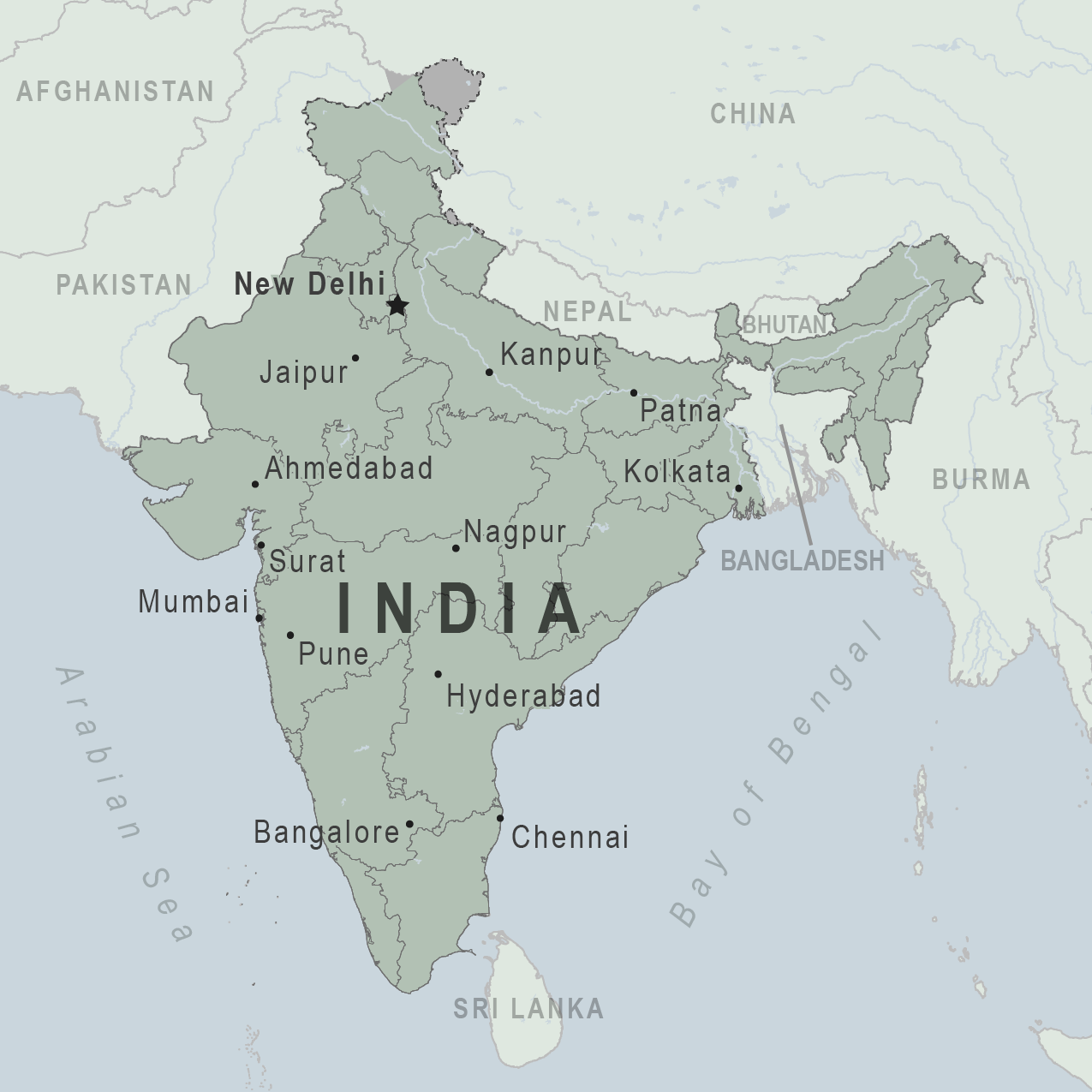
Be aware of current health issues in India. Learn how to protect yourself.
Level 2 Practice Enhanced Precautions
- New Zika in the state of Maharashtra, India August 22, 2024 There is an outbreak of Zika in the state of Maharashtra, India. All travelers to Maharashtra should take steps to prevent mosquito bites and sexual transmission of Zika virus during and after travel.
Level 1 Practice Usual Precautions
- Updated Global Measles August 14, 2024 Many international destinations are reporting increased numbers of cases of measles. Destination List: Afghanistan, Angola, Armenia, Austria, Azerbaijan, Belarus, Benin, Bhutan, Bosnia and Herzegovina, Burkina Faso, Burundi, Cameroon, Central African Republic, Chad, Côte d'Ivoire (Ivory Coast), Democratic Republic of the Congo, Djibouti, Equatorial Guinea, Ethiopia, Gabon, Georgia, Ghana, Guinea, India, Indonesia, Kazakhstan, Kyrgyzstan, Lebanon, Liberia, Malaysia, Mali, Mauritania, Mozambique, Niger, Nigeria, Pakistan, Philippines, Qatar, Republic of South Sudan, Republic of the Congo, Romania, Russia, San Marino, Senegal, Somalia, Sri Lanka, Sudan, Syria, Togo, Turkey, United Arab Emirates, Uzbekistan, Yemen, Zambia
⇧ Top
Check the vaccines and medicines list and visit your doctor at least a month before your trip to get vaccines or medicines you may need. If you or your doctor need help finding a location that provides certain vaccines or medicines, visit the Find a Clinic page.
Avoid contaminated water
Leptospirosis
How most people get sick (most common modes of transmission)
- Touching urine or other body fluids from an animal infected with leptospirosis
- Swimming or wading in urine-contaminated fresh water, or contact with urine-contaminated mud
- Drinking water or eating food contaminated with animal urine
- Avoid contaminated water and soil
- Avoid floodwater
Clinical Guidance
Avoid bug bites.
Crimean-Congo Hemorrhagic fever
- Tick bite
- Touching the body fluids of a person or animal infected with CCHF
- Avoid Bug Bites
- Mosquito bite
Leishmaniasis
- Sand fly bite
- An infected pregnant woman can spread it to her unborn baby
Airborne & droplet
Avian/bird flu.
- Being around, touching, or working with infected poultry, such as visiting poultry farms or live-animal markets
- Avoid domestic and wild poultry
- Breathing in air or accidentally eating food contaminated with the urine, droppings, or saliva of infected rodents
- Bite from an infected rodent
- Less commonly, being around someone sick with hantavirus (only occurs with Andes virus)
- Avoid rodents and areas where they live
- Avoid sick people
Tuberculosis (TB)
- Breathe in TB bacteria that is in the air from an infected and contagious person coughing, speaking, or singing.
Avoid skin contact
Antimicrobial-resistant (ar) ringworm.
- Close contact with infected person
- Shared objects (e.g., towels, bed sheets)
- Shared surfaces (e.g., locker room and shower floors)
- Keep skin clean and dry.
- Do not share bedding, towels, or clothes.
- Avoid touching the infected area so it does not spread to other parts of your body.
- Consult a healthcare provider for treatment and testing.
- Avoid steroid creams, as they can make the ringworm worse.
- Use prescribed or over-the-counter (OTC) antifungals exactly as directed and contact a healthcare provider if treatment is not working.
- Topical antifungals and oral terbinafine are frequently ineffective against AR ringworm.
Emerging Severe and Antimicrobial-Resistant Ringworm | Ringworm | CDC
Learn actions you can take to stay healthy and safe on your trip. Vaccines cannot protect you from many diseases in India, so your behaviors are important.
Eat and drink safely
Food and water standards around the world vary based on the destination. Standards may also differ within a country and risk may change depending on activity type (e.g., hiking versus business trip). You can learn more about safe food and drink choices when traveling by accessing the resources below.
- Choose Safe Food and Drinks When Traveling
- Water Treatment Options When Hiking, Camping or Traveling
- Global Water, Sanitation and Hygiene (WASH)
- Avoid Contaminated Water During Travel
You can also visit the Department of State Country Information Pages for additional information about food and water safety.
Prevent bug bites
Bugs (like mosquitoes, ticks, and fleas) can spread a number of diseases in India. Many of these diseases cannot be prevented with a vaccine or medicine. You can reduce your risk by taking steps to prevent bug bites.
What can I do to prevent bug bites?
- Cover exposed skin by wearing long-sleeved shirts, long pants, and hats.
- Use an appropriate insect repellent (see below).
- Use permethrin-treated clothing and gear (such as boots, pants, socks, and tents). Do not use permethrin directly on skin.
- Stay and sleep in air-conditioned or screened rooms.
- Use a bed net if the area where you are sleeping is exposed to the outdoors.
What type of insect repellent should I use?
- FOR PROTECTION AGAINST TICKS AND MOSQUITOES: Use a repellent that contains 20% or more DEET for protection that lasts up to several hours.
- Picaridin (also known as KBR 3023, Bayrepel, and icaridin)
- Oil of lemon eucalyptus (OLE) or para-menthane-diol (PMD)
- 2-undecanone
- Always use insect repellent as directed.
What should I do if I am bitten by bugs?
- Avoid scratching bug bites, and apply hydrocortisone cream or calamine lotion to reduce the itching.
- Check your entire body for ticks after outdoor activity. Be sure to remove ticks properly.
What can I do to avoid bed bugs?
Although bed bugs do not carry disease, they are an annoyance. See our information page about avoiding bug bites for some easy tips to avoid them. For more information on bed bugs, see Bed Bugs .
For more detailed information on avoiding bug bites, see Avoid Bug Bites .
Some diseases in India—such as dengue, Zika, filariasis, and leishmaniasis—are spread by bugs and cannot be prevented with a vaccine. Follow the insect avoidance measures described above to prevent these and other illnesses.

Stay safe outdoors
If your travel plans in India include outdoor activities, take these steps to stay safe and healthy during your trip.
- Stay alert to changing weather conditions and adjust your plans if conditions become unsafe.
- Prepare for activities by wearing the right clothes and packing protective items, such as bug spray, sunscreen, and a basic first aid kit.
- Consider learning basic first aid and CPR before travel. Bring a travel health kit with items appropriate for your activities.
- If you are outside for many hours in heat, eat salty snacks and drink water to stay hydrated and replace salt lost through sweating.
- Protect yourself from UV radiation : use sunscreen with an SPF of at least 15, wear protective clothing, and seek shade during the hottest time of day (10 a.m.–4 p.m.).
- Be especially careful during summer months and at high elevation. Because sunlight reflects off snow, sand, and water, sun exposure may be increased during activities like skiing, swimming, and sailing.
- Very cold temperatures can be dangerous. Dress in layers and cover heads, hands, and feet properly if you are visiting a cold location.
Stay safe around water
- Swim only in designated swimming areas. Obey lifeguards and warning flags on beaches.
- Practice safe boating—follow all boating safety laws, do not drink alcohol if driving a boat, and always wear a life jacket.
- Do not dive into shallow water.
- Do not swim in freshwater in developing areas or where sanitation is poor.
- Avoid swallowing water when swimming. Untreated water can carry germs that make you sick.
- To prevent infections, wear shoes on beaches where there may be animal waste.
Schistosomiasis and leptospirosis, infections that can be spread in fresh water, are found in India. Avoid swimming in fresh, unchlorinated water, such as lakes, ponds, or rivers.
Keep away from animals
Most animals avoid people, but they may attack if they feel threatened, are protecting their young or territory, or if they are injured or ill. Animal bites and scratches can lead to serious diseases such as rabies.
Follow these tips to protect yourself:
- Do not touch or feed any animals you do not know.
- Do not allow animals to lick open wounds, and do not get animal saliva in your eyes or mouth.
- Avoid rodents and their urine and feces.
- Traveling pets should be supervised closely and not allowed to come in contact with local animals.
- If you wake in a room with a bat, seek medical care immediately. Bat bites may be hard to see.
All animals can pose a threat, but be extra careful around dogs, bats, monkeys, sea animals such as jellyfish, and snakes. If you are bitten or scratched by an animal, immediately:
- Wash the wound with soap and clean water.
- Go to a doctor right away.
- Tell your doctor about your injury when you get back to the United States.
Consider buying medical evacuation insurance. Rabies is a deadly disease that must be treated quickly, and treatment may not be available in some countries.
Reduce your exposure to germs
Follow these tips to avoid getting sick or spreading illness to others while traveling:
- Wash your hands often, especially before eating.
- If soap and water aren’t available, clean hands with hand sanitizer (containing at least 60% alcohol).
- Don’t touch your eyes, nose, or mouth. If you need to touch your face, make sure your hands are clean.
- Cover your mouth and nose with a tissue or your sleeve (not your hands) when coughing or sneezing.
- Try to avoid contact with people who are sick.
- If you are sick, stay home or in your hotel room, unless you need medical care.
Avoid sharing body fluids
Diseases can be spread through body fluids, such as saliva, blood, vomit, and semen.
Protect yourself:
- Use latex condoms correctly.
- Do not inject drugs.
- Limit alcohol consumption. People take more risks when intoxicated.
- Do not share needles or any devices that can break the skin. That includes needles for tattoos, piercings, and acupuncture.
- If you receive medical or dental care, make sure the equipment is disinfected or sanitized.
Know how to get medical care while traveling
Plan for how you will get health care during your trip, should the need arise:
- Carry a list of local doctors and hospitals at your destination.
- Review your health insurance plan to determine what medical services it would cover during your trip. Consider purchasing travel health and medical evacuation insurance.
- Carry a card that identifies, in the local language, your blood type, chronic conditions or serious allergies, and the generic names of any medications you take.
- Some prescription drugs may be illegal in other countries. Call India’s embassy to verify that all of your prescription(s) are legal to bring with you.
- Bring all the medicines (including over-the-counter medicines) you think you might need during your trip, including extra in case of travel delays. Ask your doctor to help you get prescriptions filled early if you need to.
Many foreign hospitals and clinics are accredited by the Joint Commission International. A list of accredited facilities is available at their website ( www.jointcommissioninternational.org ).
In some countries, medicine (prescription and over-the-counter) may be substandard or counterfeit. Bring the medicines you will need from the United States to avoid having to buy them at your destination.
Malaria is a risk in India. Fill your malaria prescription before you leave and take enough with you for the entire length of your trip. Follow your doctor’s instructions for taking the pills; some need to be started before you leave.
Select safe transportation
Motor vehicle crashes are the #1 killer of healthy US citizens in foreign countries.
In many places cars, buses, large trucks, rickshaws, bikes, people on foot, and even animals share the same lanes of traffic, increasing the risk for crashes.
Be smart when you are traveling on foot.
- Use sidewalks and marked crosswalks.
- Pay attention to the traffic around you, especially in crowded areas.
- Remember, people on foot do not always have the right of way in other countries.
Riding/Driving
Choose a safe vehicle.
- Choose official taxis or public transportation, such as trains and buses.
- Ride only in cars that have seatbelts.
- Avoid overcrowded, overloaded, top-heavy buses and minivans.
- Avoid riding on motorcycles or motorbikes, especially motorbike taxis. (Many crashes are caused by inexperienced motorbike drivers.)
- Choose newer vehicles—they may have more safety features, such as airbags, and be more reliable.
- Choose larger vehicles, which may provide more protection in crashes.
Think about the driver.
- Do not drive after drinking alcohol or ride with someone who has been drinking.
- Consider hiring a licensed, trained driver familiar with the area.
- Arrange payment before departing.
Follow basic safety tips.
- Wear a seatbelt at all times.
- Sit in the back seat of cars and taxis.
- When on motorbikes or bicycles, always wear a helmet. (Bring a helmet from home, if needed.)
- Avoid driving at night; street lighting in certain parts of India may be poor.
- Do not use a cell phone or text while driving (illegal in many countries).
- Travel during daylight hours only, especially in rural areas.
- If you choose to drive a vehicle in India, learn the local traffic laws and have the proper paperwork.
- Get any driving permits and insurance you may need. Get an International Driving Permit (IDP). Carry the IDP and a US-issued driver's license at all times.
- Check with your auto insurance policy's international coverage, and get more coverage if needed. Make sure you have liability insurance.
- Avoid using local, unscheduled aircraft.
- If possible, fly on larger planes (more than 30 seats); larger airplanes are more likely to have regular safety inspections.
- Try to schedule flights during daylight hours and in good weather.
Medical Evacuation Insurance
If you are seriously injured, emergency care may not be available or may not meet US standards. Trauma care centers are uncommon outside urban areas. Having medical evacuation insurance can be helpful for these reasons.
Helpful Resources
Road Safety Overseas (Information from the US Department of State): Includes tips on driving in other countries, International Driving Permits, auto insurance, and other resources.
The Association for International Road Travel has country-specific Road Travel Reports available for most countries for a minimal fee.
Traffic flows on the left side of the road in India.
- Always pay close attention to the flow of traffic, especially when crossing the street.
- LOOK RIGHT for approaching traffic.
For information traffic safety and road conditions in India, see Travel and Transportation on US Department of State's country-specific information for India .
Maintain personal security
Use the same common sense traveling overseas that you would at home, and always stay alert and aware of your surroundings.
Before you leave
- Research your destination(s), including local laws, customs, and culture.
- Monitor travel advisories and alerts and read travel tips from the US Department of State.
- Enroll in the Smart Traveler Enrollment Program (STEP) .
- Leave a copy of your itinerary, contact information, credit cards, and passport with someone at home.
- Pack as light as possible, and leave at home any item you could not replace.
While at your destination(s)
- Carry contact information for the nearest US embassy or consulate .
- Carry a photocopy of your passport and entry stamp; leave the actual passport securely in your hotel.
- Follow all local laws and social customs.
- Do not wear expensive clothing or jewelry.
- Always keep hotel doors locked, and store valuables in secure areas.
- If possible, choose hotel rooms between the 2nd and 6th floors.
To call for emergency services while in India, dial 100 or, from a mobile phone, 112. Write these numbers down to carry with you during your trip.
Learn as much as you can about India before you travel there. A good place to start is the country-specific information on India from the US Department of State.
Healthy Travel Packing List
Use the Healthy Travel Packing List for India for a list of health-related items to consider packing for your trip. Talk to your doctor about which items are most important for you.
Why does CDC recommend packing these health-related items?
It’s best to be prepared to prevent and treat common illnesses and injuries. Some supplies and medicines may be difficult to find at your destination, may have different names, or may have different ingredients than what you normally use.
If you are not feeling well after your trip, you may need to see a doctor. If you need help finding a travel medicine specialist, see Find a Clinic . Be sure to tell your doctor about your travel, including where you went and what you did on your trip. Also tell your doctor if you were bitten or scratched by an animal while traveling.
If your doctor prescribed antimalarial medicine for your trip, keep taking the rest of your pills after you return home. If you stop taking your medicine too soon, you could still get sick.
Malaria is always a serious disease and may be a deadly illness. If you become ill with a fever either while traveling in a malaria-risk area or after you return home (for up to 1 year), you should seek immediate medical attention and should tell the doctor about your travel history.
For more information on what to do if you are sick after your trip, see Getting Sick after Travel .
Map Disclaimer - The boundaries and names shown and the designations used on maps do not imply the expression of any opinion whatsoever on the part of the Centers for Disease Control and Prevention concerning the legal status of any country, territory, city or area or of its authorities, or concerning the delimitation of its frontiers or boundaries. Approximate border lines for which there may not yet be full agreement are generally marked.
Other Destinations
If you need help finding travel information:
Message & data rates may apply. CDC Privacy Policy
File Formats Help:
- Adobe PDF file
- Microsoft PowerPoint file
- Microsoft Word file
- Microsoft Excel file
- Audio/Video file
- Apple Quicktime file
- RealPlayer file
- Zip Archive file
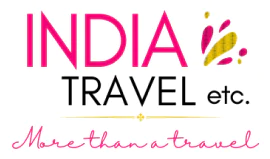
Rajasthan Tour Packages by India Travel etc
+918619841448.
Rajasthan Tour Packages
Explore our Rajasthan Tour Packages and immerse yourself in the allure of this majestic land, where every corner unveils a tale of grandeur and beauty. Embark on a journey that will leave you spellbound as you unravel the secrets of this timeless destination in India.
If you’re planning a holiday to Rajasthan , look no further. Our tour packages, starting from Delhi, Jaipur, and Udaipur, have got you covered.
Our meticulously crafted Rajasthan holiday packages ensure you explore the hidden gems and famous landmarks of this land of Maharajas, from the iconic Hawa Mahal in Jaipur to the majestic Mehrangarh Fort in Jodhpur. Experience the vibrant markets of Udaipur and witness the awe-inspiring beauty of the Thar Desert in Jaisalmer.
Embark on a journey of a lifetime and create unforgettable memories as you delve into the royal heritage and vibrant culture of Rajasthan. Let us be your guide and companion in your incredible adventure to Rajasthan.
Our Best Rajasthan Tour Packages
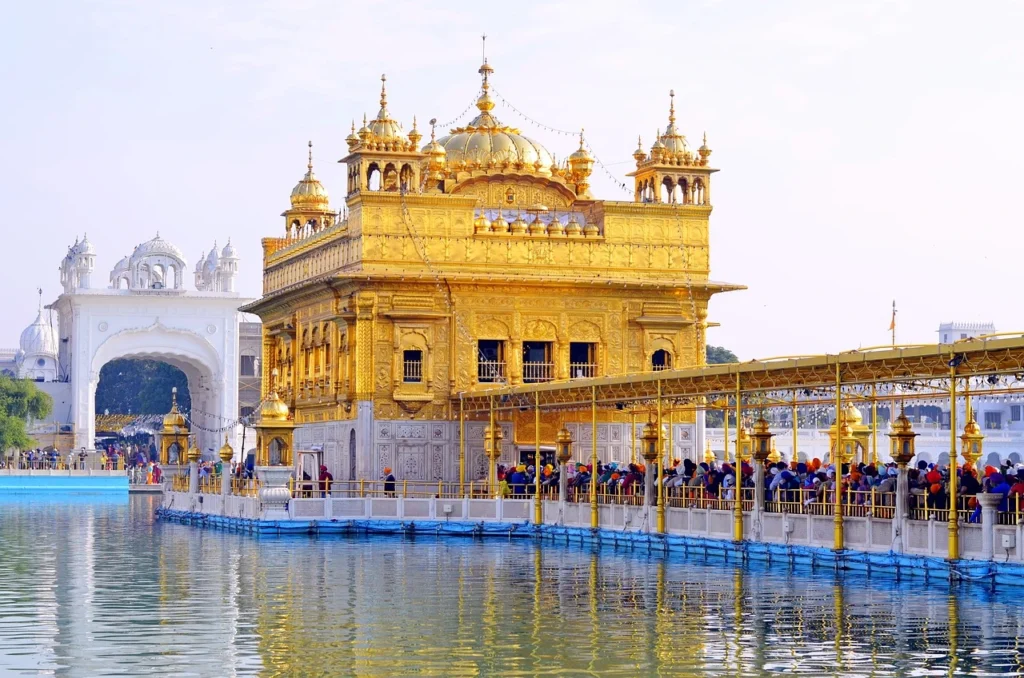
Rajasthan and Golden Temple Tour
Experience the beauty of Rajasthan and the idyllic luxury of Golden Temple with our exclusive Complete Rajasthan and Golden Temple tour 20 days / 19 nights

India Explorer Tour from North to South
North to South India Tour Package offers a diverse range of cultural experiences, historical exploration, and immersive encounters.
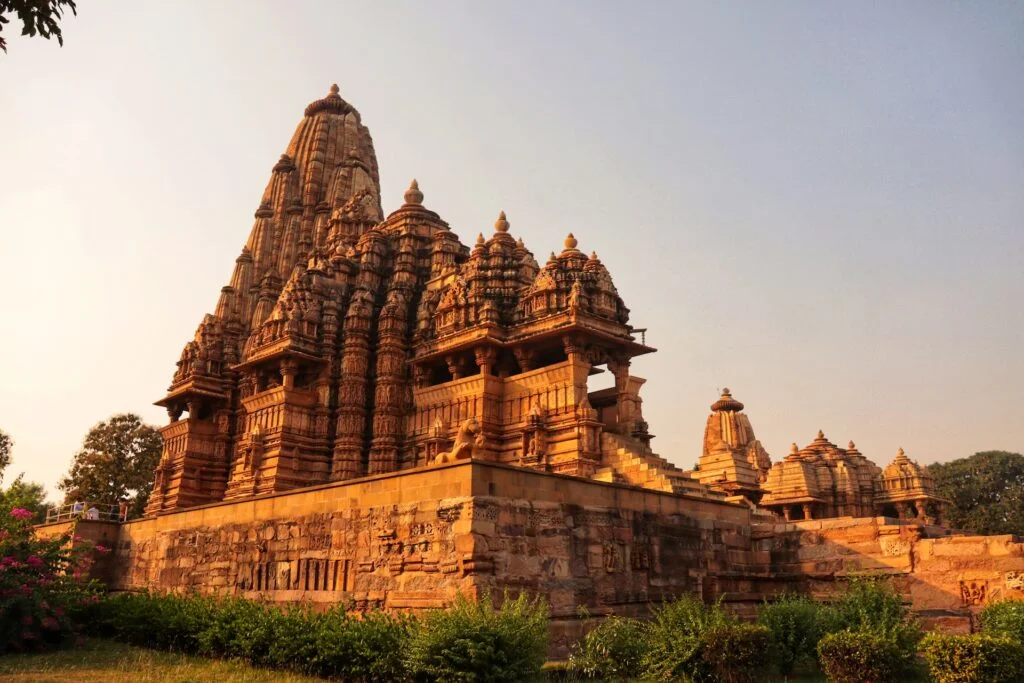
Rajasthan & Kamasutra Temple Tour with Varanasi
Embark on a 20-day journey through the mesmerizing landscapes and rich cultural tapestry of Rajasthan, Delhi, Agra, Khajuraho, and beyond.
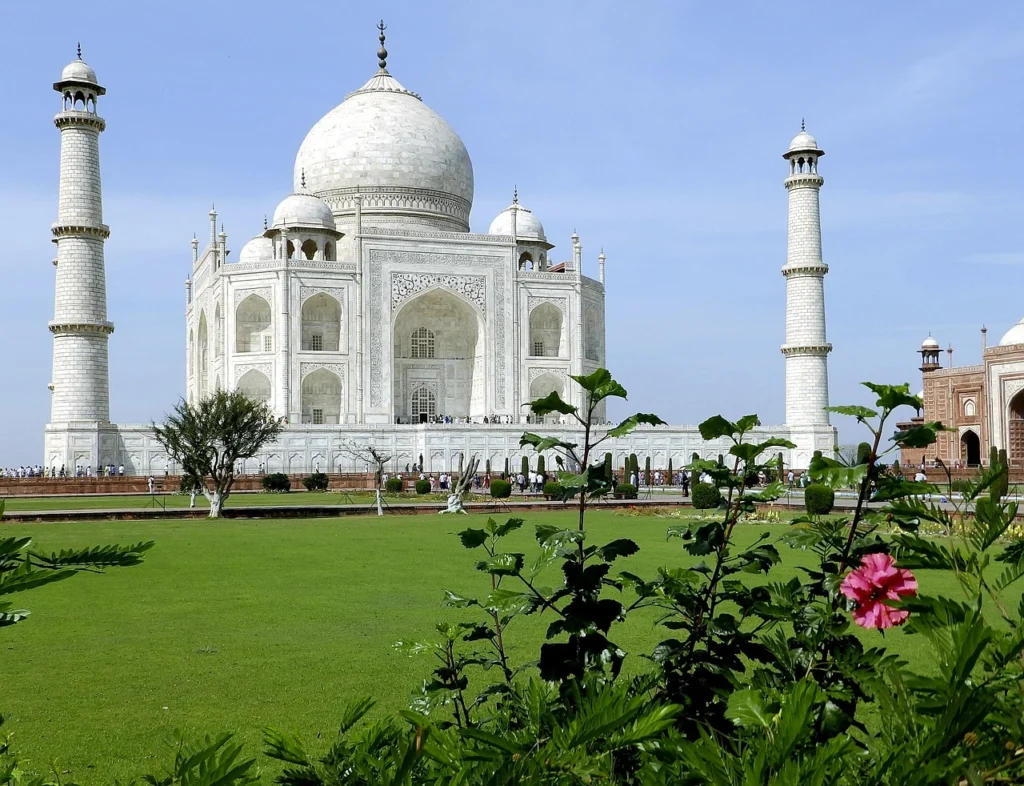
Golden Triangle Tour of India
6 nights / 7 days Itinerary: Delhi / Jaipur / Agra Starting from: $ 499 / person (on a double sharing basis
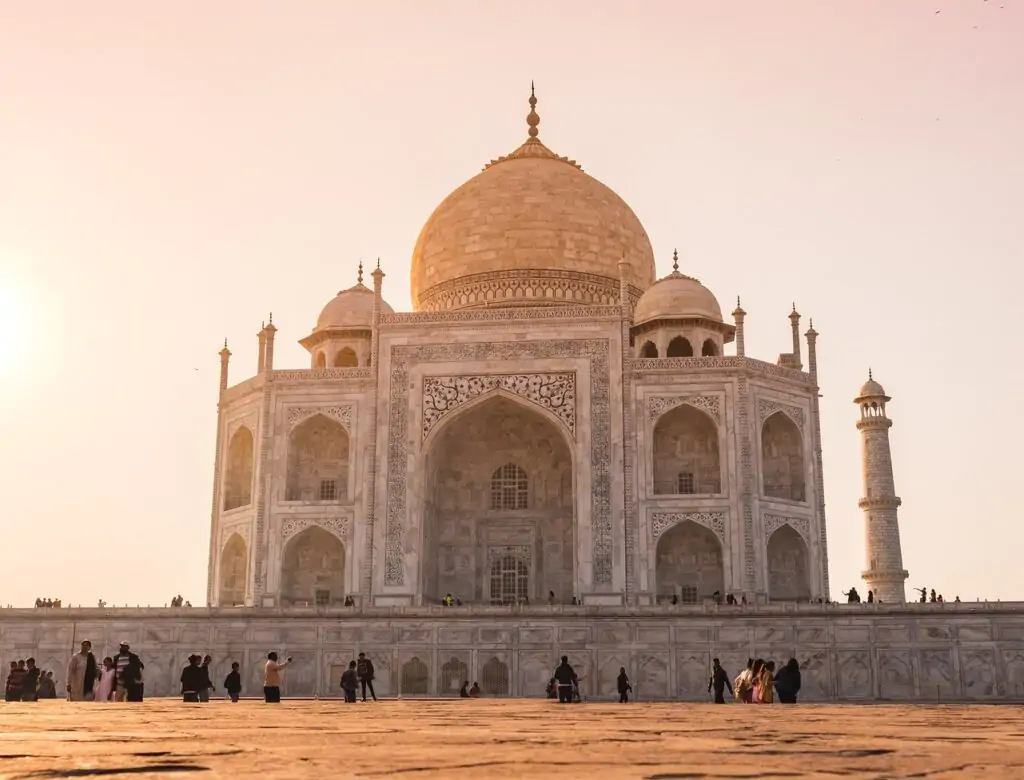
Best of Rajasthan in 15 days
Discover the best of Rajasthan in 15 days: An exploration tour from the bustling streets of Delhi to the vibrant cities of Rajasthan.
$ 899 $ 999
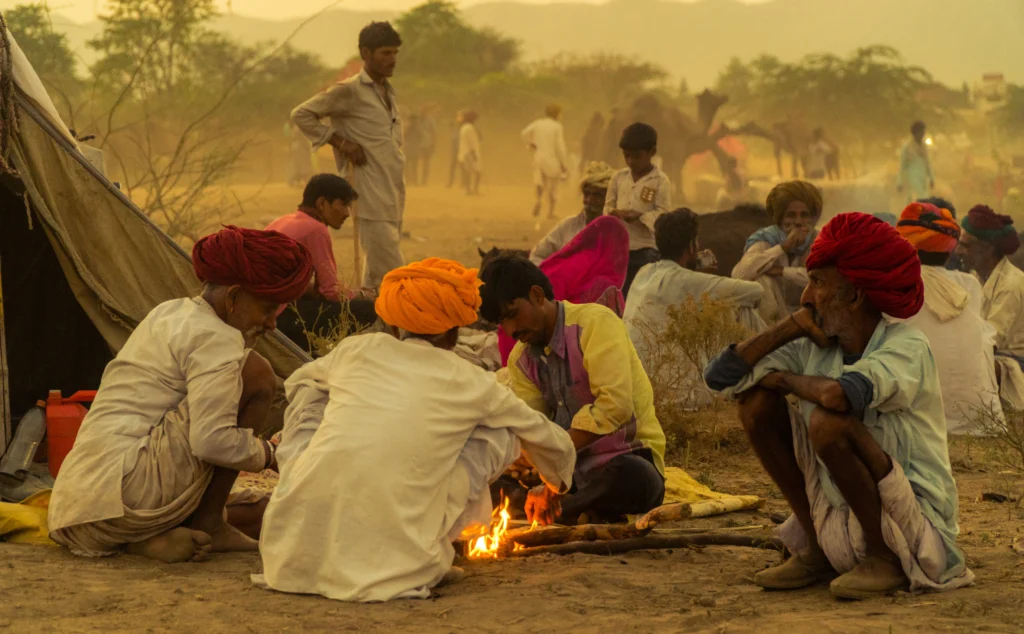
Rajasthan Tour with Pushkar Camel fair 2024
Experience the essence of Rajasthan on this 15-day journey that takes you through its most iconic cities and culminates in the world-renowned Pushkar Camel Fair.
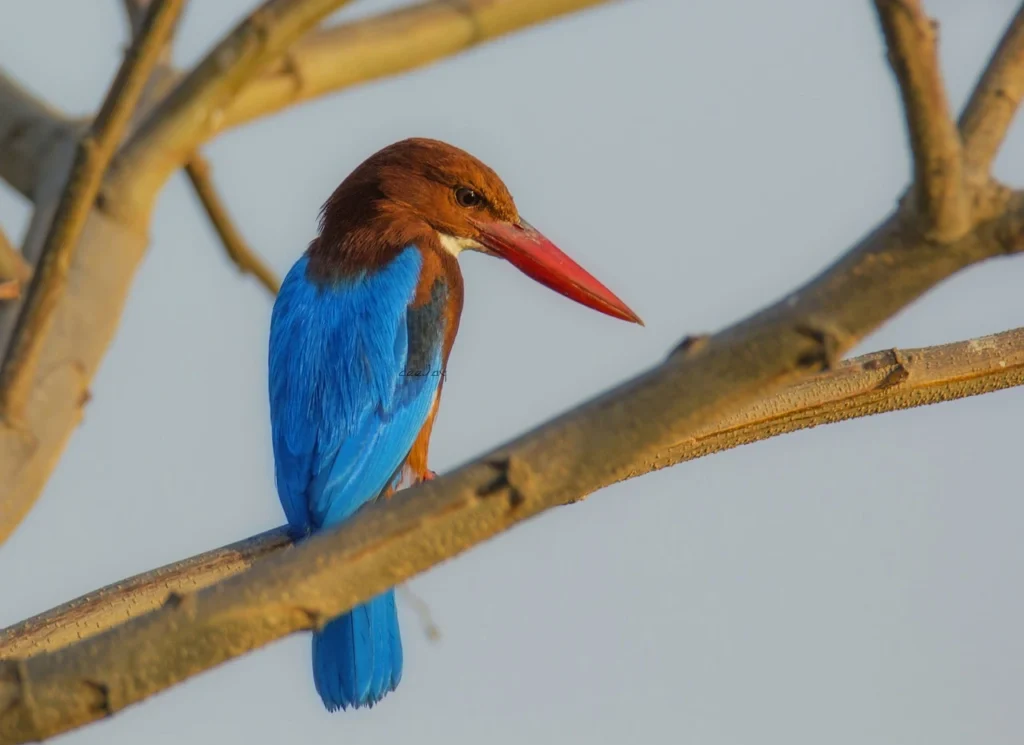
India Birding Tour
Embark on an unforgettable birding adventure in India Experience the vibrant world of birds with our India Birding Tour package.
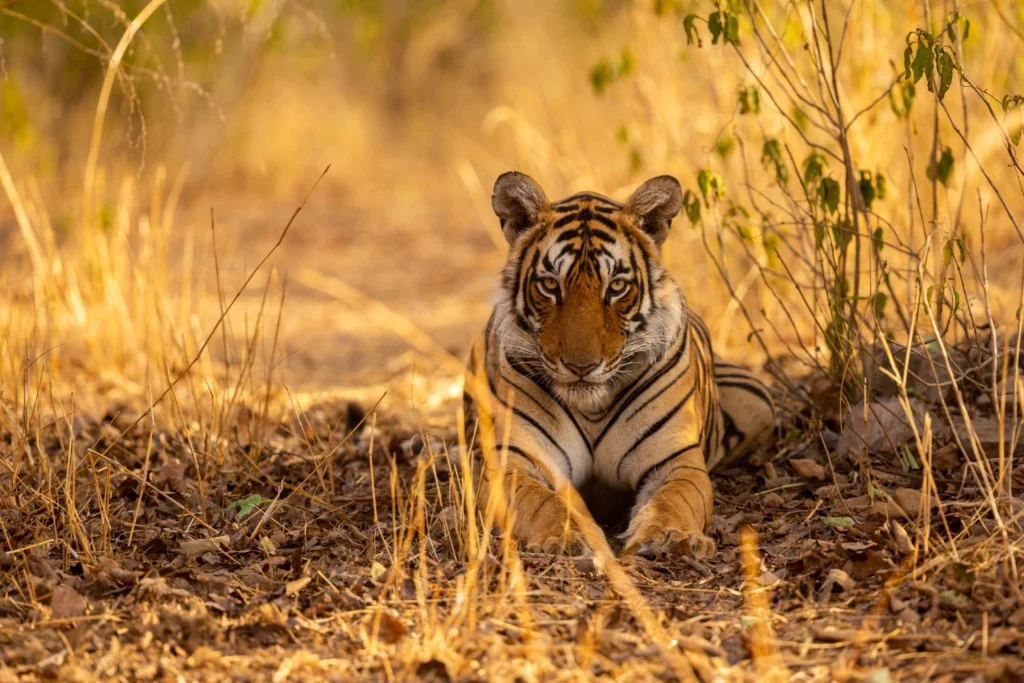
India’s Tigers and Lions Safari Tour
Discover India's majestic wildlife and cultural wonders in a 15-day India Safari Tour. This tour, aptly named 'India's Bengal Tigers and Lions,'
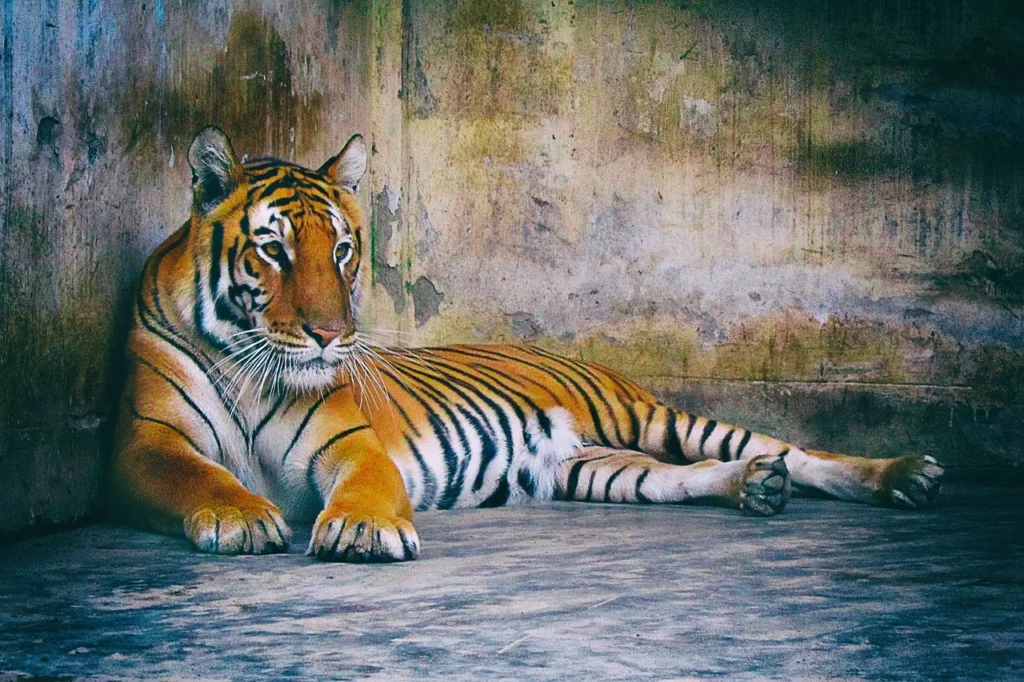
Tiger Safari & Taj Mahal Tour
Itinerary: Delhi / Jaipur / Ranthambore / Agra / Jabalpur / Bandhavgarh / Kanha Starting from: USD 2279 / person Discover India’s most celebrated national national parks on our 14-day Tiger Safari tour

Forts & Palaces of Rajasthan
Welcome to the 'Forts and Palaces of Rajasthan' tour, a journey through time and grandeur. Immerse yourself in the rich history and intricate architecture of Rajasthan's most iconic fortresses and royal residences.
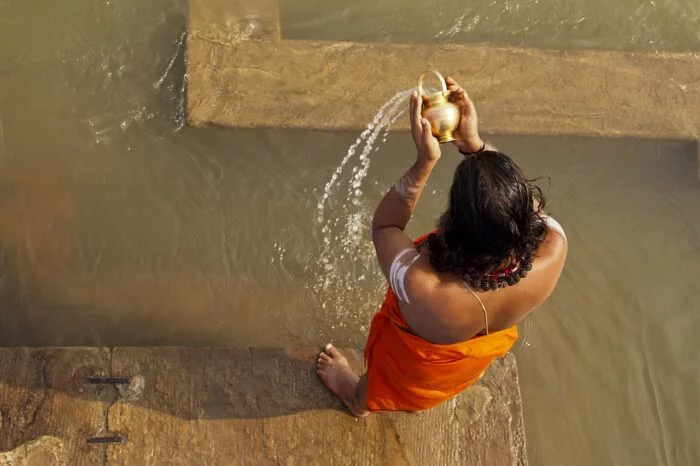
Rajasthan and Varanasi Tour Package
Captivating 18-day journey through the cultural and historical wonders of India with our Rajasthan & Varanasi Tour Package.
I have my own Rajasthan Tour Plan ?
Some immersive activities for your rajasthan tour package.
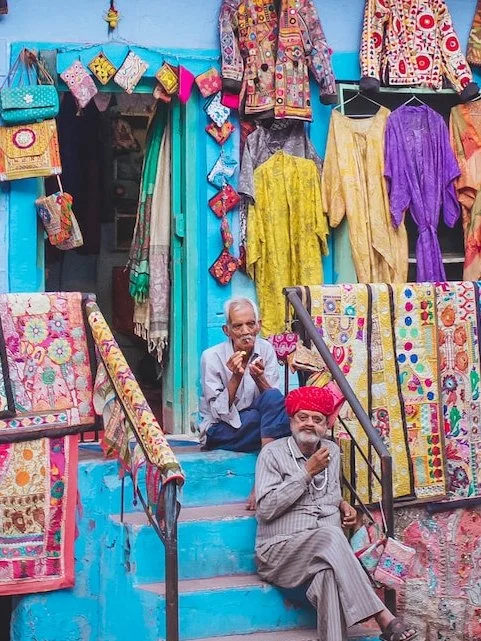
Shopping in Local Markets
Rajasthan is renowned for its exquisite handicrafts, textiles, and jewelry. Take a stroll through the bustling markets of Jaipur, Jodhpur, or Udaipur and shop for unique souvenirs to take back home.

Cooking class with an Indian family
Experience the warmth and hospitality of Rajasthan by taking a cooking class with a local Indian family. Learn to cook traditional indian dishes and immerse yourself in their culture and way of life.
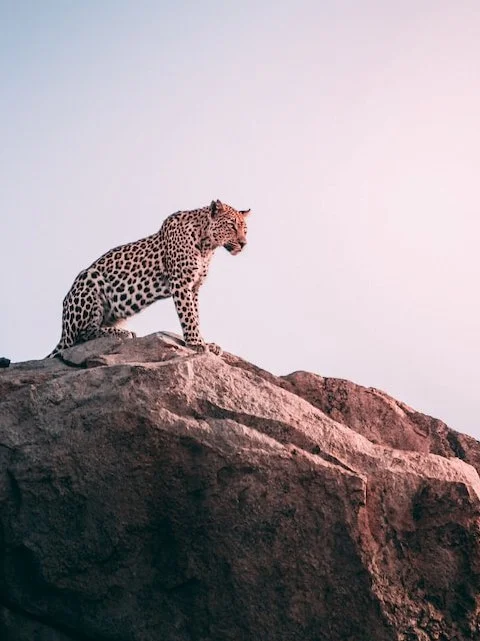
Leopard Safari in Jaipur & Jawai
For a unique and thrilling experience, go on a leopard safari in Jaipur or Jawai. Get up close and personal with these elusive creatures as you explore their natural habitat and learn about their behavior from expert guides.
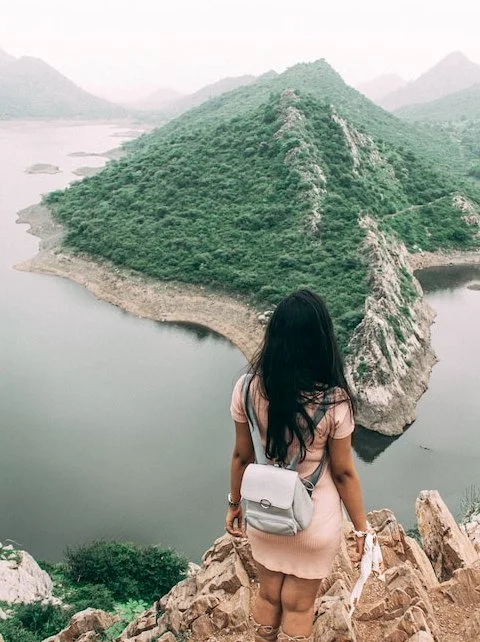
Trekking in Arawali Mountains
For adventure seekers, trekking in the Arawali Mountains is a must-do activity. Explore the rugged terrain and witness stunning views of the surrounding landscape as you make your way through ancient forts and temples.
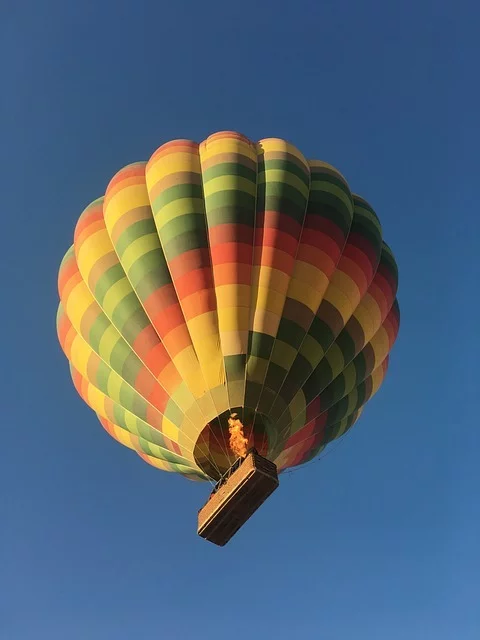
Hot Air Ballon Ride in Jaipur & Pushkar
Experience the magical views of Jaipur & Pushkar from a bird’s eye view with a hot air balloon ride. Soar above the picturesque landscapes, majestic forts, and vibrant markets for an unforgettable adventure.
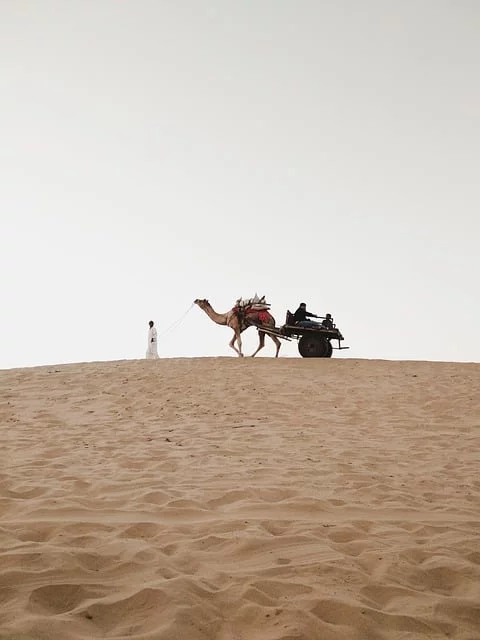
Camel safari in Jaisalmer & Bikaner
No Rajasthan tour is complete without a camel safari through the golden sand dunes of Jaisalmer and Bikaner. Experience the beauty of the desert landscape and witness a breathtaking sunset over the horizon.
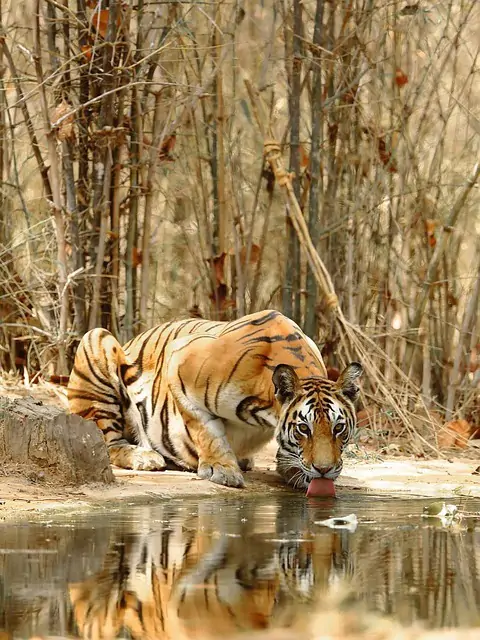
Tiger Spotting in Ranthambore
For nature lovers and wildlife enthusiasts, a safari in Ranthambore National Park is a must. Home to the magnificent Royal Bengal Tigers, this park offers an exhilarating experience
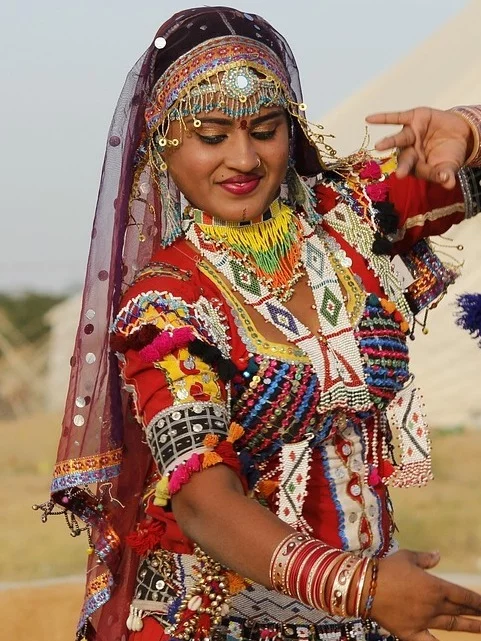
Traditional Dance Performances
No visit to Rajasthan is complete without witnessing traditional dance performances like Kathak, Ghoomar, and Kalbelia. These vibrant dances are performed by skilled artists dressed in colorful traditional attire,
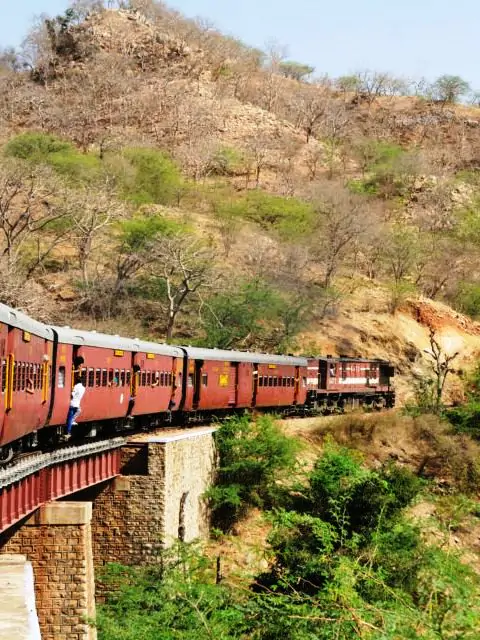
Train ride in Jojawar village.
Experience the quintessential charm of rural Rajasthan by taking a train ride through the picturesque village of Jojawar. Witness the daily life of villagers and soak in the scenic views of rolling hills and lush green fields.
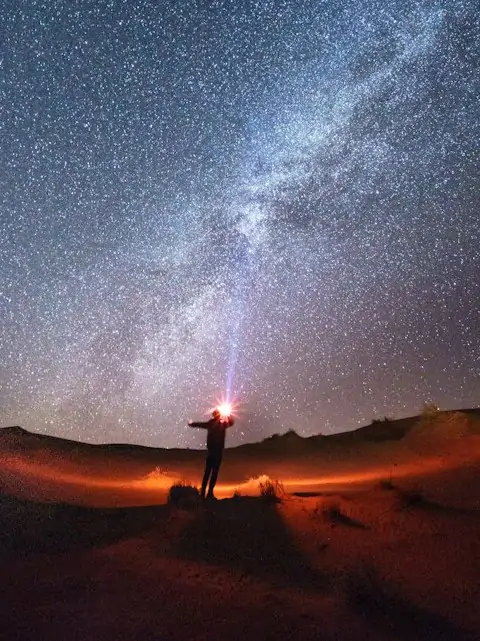
Sky gazzing in Thar Desert.
Escape the city lights and go on a sky gazing experience in the Thar Desert. Marvel at the millions of stars that light up the night sky and learn about the constellations from knowledgeable guides.
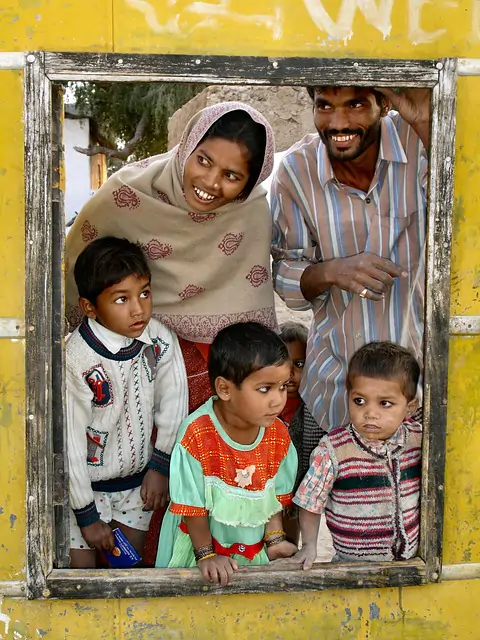
Stay with family in Jaipur.
Immerse yourself in the local culture by staying with a Rajasthani family in Jaipur. Learn about their customs and traditions, taste authentic home-cooked meals, and create unforgettable memories.
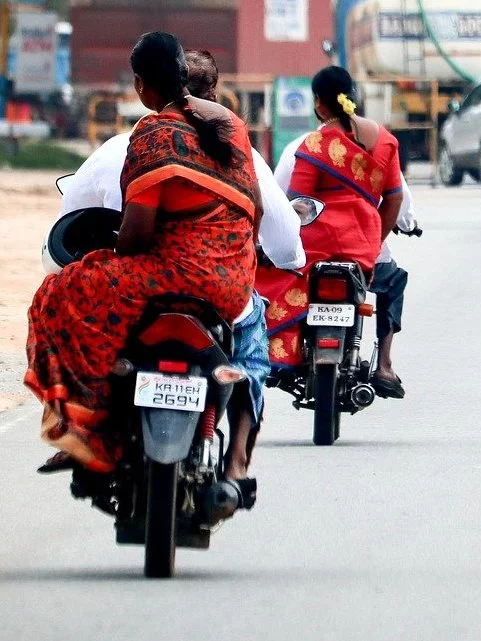
Scooter Ride to explore the streets of Jaipur
Hop on a scooter and explore the narrow streets and hidden gems of Jaipur. Get an up-close look at the lively markets, bustling bazaars, and magnificent architecture in this colorful city.
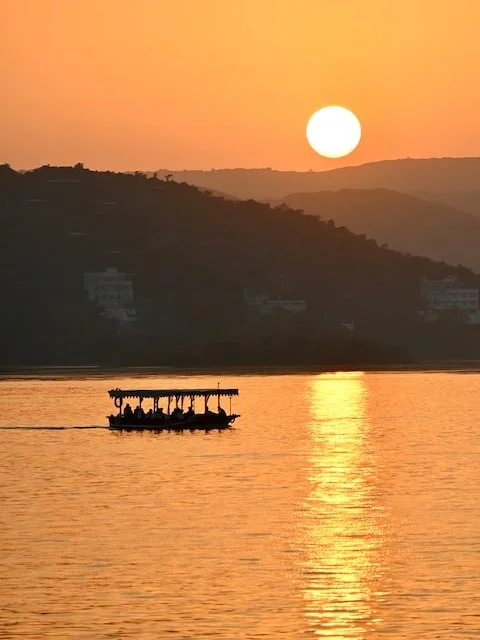
Boat Ride in Udaipur
Take a relaxing boat ride on the serene waters of Lake Pichola in Udaipur and witness the stunning views of the City Palace, Jag Mandir, and other historical sites.
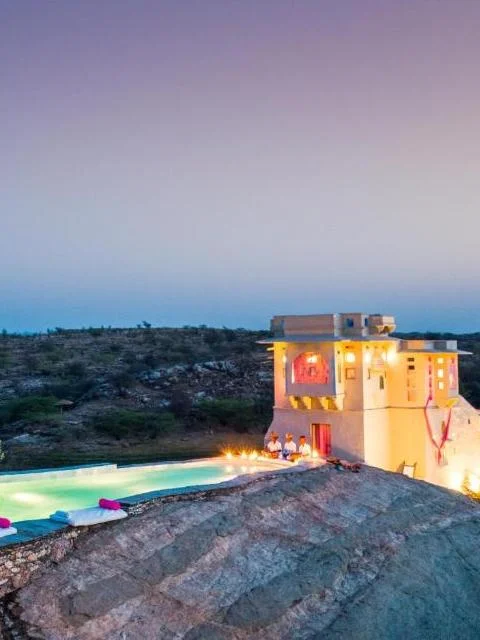
Stay at Laxman Sagar
Experience true luxury and tranquility at Laxman Sagar in Pali. This heritage property offers exclusive villas with private plunge pools, gourmet meals, and a wide range of activities such as horse riding, pottery making, and village hike;
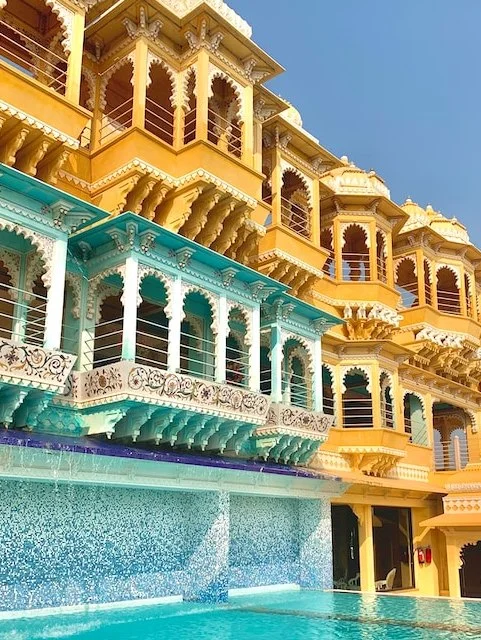
Get married in palace in Rajasthan
Make your dream fairytale wedding a reality by choosing to tie the knot in one of Rajasthan’s magnificent palaces. Experience royal hospitality, stunning decor, and an once-in-a-lifetime experience at these beautiful heritage properties on your big day.
Stay in a village & explore the rural life
Get a taste of the simple yet enriching rural life in Rajasthan by staying in a village home. Learn about local customs and traditions, participate in farming activities, and interact with friendly villagers.

Kedar - Our Rajasthan Travel Designer
Born in Jaipur, Kedar founded India Travel, a local travel agency in Rajasthan specializing in custom and immersive India tour packages. Previously a French-speaking guide, Kedar holds a master’s degree in tourism from the University of Angers, France. Today he creates the customized Rajasthan Tour Packages for our clients.
Rajasthan is home to numerous historical monuments, rich cultural heritage, vibrant festivals, and stunning landscapes that have been attracting tourists from all over the world for decades
Some of the must-see places in Rajasthan include the majestic forts and palaces of Jaipur, the romantic city of Udaipur, the desert landscapes of Jaisalmer and Bikaner, and the holy city of Pushkar.
There are various budget-friendly options available for exploring Rajasthan such as staying in homestays or guesthouses, using public transportation, and visiting local markets for shopping and dining.
Some of the best activities to do in Rajasthan include camel safaris in the Thar desert, hot air balloon rides over Jaipur, attending cultural performances like dance and music shows, and trying out traditional Rajasthani cuisine.
Rajasthan is generally considered a safe destination for tourists even for solo travelers and women. However, it is always advisable to take necessary precautions and be aware of your surroundings while traveling.
The winter months (October-March) are considered the best time to visit Rajasthan as the weather is pleasant and ideal for exploring outdoor attractions. However, each season has its own charm and different festivals are celebrated throughout the year in Rajasthan.
You can easily book a Rajasthan tour package through a reputed Rajasthan tour operator. They offer various packages ranging from luxury tours to private tours and group tour packages, catering to different travel preferences and budgets. Alternatively, you can also book a package directly from the official Rajasthan tourism website or through other online travel agencies
From beautiful textiles and handicrafts to precious gemstones and traditional jewelry, Rajasthan has something to offer for everyone.

We at India Travel Etc try to keep the real spirit of India in our tailor-made tours. Our teams of travel designers work hard to make every tour of India as unique as possible.
Useful Links
- Indian Visa online
- India Tour Packages 2024-25
- Practical information
- The best period to visit India
- Terms & Conditions
- Privacy Policy
- Refund Return Policy
- India Car Rental
Popular Destinations
- South India
- Central India
- North India
- All India tour packages
+91-92564 06916
- HE – 704, Hanuman Nagar Ext. Anand Nagar, Sanskar School Road, Jaipur – 302012, Rajasthan, India
Designed & Developed by Pixel n Tech © Copyright 2024 India Travel Etc. All Rights Reserved.
www.indiatraveletc.fr | www.indiatraveletc.es
We Create Experiences Not a SimpleTravel
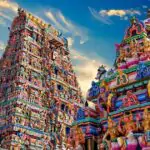
Our Contacts
557 B, Moti Nagar West Vaishali Nagar Jaipur - 302021, Rajasthan India
Best Travel Theme
Elementor demos.
With Love Travel WordPress Theme you will have everything you need to create a memorable online presence. Start create your dream travel site today.

Our India adventures started over 28 years ago when we backpacked throughout the Golden Triangle and the Goan Coast. Since then we've traveled back to India several times with a promise to retire and discover India in full. After many travel adventures and over 25 years in the hospitality/tourism industry, our goal is to share India with anyone who has ever been intrigued by the thought of the subcontinent of West Asia. Thus, Turning Tide Travel LLC and India Etc. were born. We'll hold your hand, and custom design your itinerary according to the specific interests and pace you desire. We're here to ease your concerns and open your hearts and minds to the delights of India and it's neighbors.
Our Services

COMPREHENSIVE TRIP PLANNING
We specialize in creating personalized itineraries for travelers who want to experience the vibrant culture, rich history, and natural beauty of India. Customized to your specific needs, our team of experts is here to assist you every step of the way. From booking accommodations to arranging transportation, we take care of everything so you can focus on creating unforgettable memories.
COMMUNICATION + BOOKING
Seamless and easy.
We understand that planning a trip can be a daunting task, so we do the heavy lifting for you. We have strong relationships with local guides and travel experts in India, ensuring that your itinerary is tailored to your specific interests with attention to every detail. Our goal is to make your travel to India a life-changing experience!
ALWAYS A PHONE CALL AWAY
Traveling can be both exciting and overwhelming, especially when you are exploring new destinations and cultures. We are here to make your journey as smooth and enjoyable as possible. Our team of experienced travel professionals is always available to help you with any questions or concerns you may have before, during, or after your trip. From last-minute trip adjustments to questions during and after travel, we're here for you!

“If I would be given a chance to rewrite the dictionary, I would flip through the pages so quickly and would replace India with, the land where beauty is redefined in itself, kindness has been touched, warmth has been spread and emotions have been felt .”
– Magith Noohukhan

IMAGES
VIDEO
COMMENTS
India Travel etc
India Etc. Travel India (and beyond!) At India Etc. our passion is to provide you with an unforgettable journey to this land of diversity and vibrance. Our custom itineraries are tailored to your interests with unexpected delights along the way you'd never have imagined. Our extensive range of travel services caters to all travel types, whether ...
Born in Jaipur, the iconic capital of Rajasthan, Kedar founded India Travel Etc in 2004, a local travel agency in Rajasthan, India specializing in custom and immersive tours in different parts of India. Before this entrepreneurial adventure, Kedar worked as a French-speaking guide for various travel agencies in India.
At India Travel Etc, we are among some of the most reliable Tour Operators in India based in Jaipur, the capital of Rajasthan. With an experience of more than 15+ years of organizing tours, we propose some of the most innovative tour packages to India. The team our travel agency in India offers tailor-made tours, car rental services, road trips ...
At India Etc Travel, we are passionate about helping people explore the beauty and diversity of India firsthand. Whether you're looking to wander Goa's stunning coastlines, explore Lakshadweep's awe-inspiring reefs and islands, navigate the mesmerizing southern backwaters, delve into the intricate architecture and culture of the north, or discover the rich tribal cultures of Northeast India ...
We pride ourselves on providing authentic, immersive travel experiences that allow our clients to truly experience the local flavor of each destination. Our guides are experts in their field because they are showcasing their country, culture, and cuisine with in-depth knowledge of India's history and traditions.
22 things to know before going to India - Lonely Planet
Whether you're intrigued about India, looking for a tour package, or just hotels or transportation (flight/train/road), we're here to help. Indiatravel.com is your one-stop shop for all information about travel and tourism in India. From travel stories to information on tours, hotels, and transportation in India.
The drivers provided by India Travel Etc were very friendly and proficient and we felt very safe all the time. The guides engaged by India Travel at the different places of interest were very knowledgeable. Especially the hotels chosen by India Travel were outstanding and at amazing locations. We definitely will chose India Travel Etc again for ...
We at India Travel Etc try to keep the real spirit of India in our tailor-made tours. Our teams of travel designers work hard to make every tour of India as unique as possible. Useful Links. Indian Visa online; India Tour Packages 2024-25; Practical information; Blog; The best period to visit India;
India Travel Etc, Jaipur, Rajasthan. 2,271 likes. We are a travel agency based in India , specialized in Tailor-Made Tour Packages to India
India Travel etc offers an exquisite selection of Kerala Tour Packages meticulously designed for families, couples, and groups. Kerala, located in the southwestern part of India, is a mesmerizing region that will leave you enchanted. Picture yourself cruising through tranquil backwaters, basking in the warmth of sun-kissed beaches, and ...
India International Travel Information
Articles, posts, essays and tips about traveling to India and the subcontinant of Western Asia. Your one-stop for resources and guides to India and beyond.
India - Traveler view | Travelers' Health
The drivers provided by India Travel Etc were very friendly and proficient and we felt very safe all the time. The guides engaged by India Travel at the different places of interest were very knowledgeable. Especially the hotels chosen by India Travel were outstanding and at amazing locations. We definitely will chose India Travel Etc again for ...
Born in Jaipur, Kedar founded India Travel, a local travel agency in Rajasthan specializing in custom and immersive India tour packages. Previously a French-speaking guide, Kedar holds a master's degree in tourism from the University of Angers, France. ... We at India Travel Etc try to keep the real spirit of India in our tailor-made tours ...
India Etc. Blog; More. India Made Easy. Traveling to India can be overwhelming, with its vast geography, diverse cultures, and endless possibilities. ... How far in advance should I plan my travel to India or the subcontinent? If you don't already have your passport, visa and vaccines (if necessary) you'll want a bit of preparation time.
The drivers provided by India Travel Etc were very friendly and proficient and we felt very safe all the time. The guides engaged by India Travel at the different places of interest were very knowledgeable. Especially the hotels chosen by India Travel were outstanding and at amazing locations. We definitely will chose India Travel Etc again for ...
They at India Travel Etc. try to keep the real spirit of India in their tailor-made tours. Their teams of travel designers work hard to make every tour of India as unique as possible.
India Travel ETC We at India Travel Etc try to keep the real spirit of India in our tailor-made tours. Our teams of travel designers work hard to make every tour of India as unique as possible.
India is a country rich in history, culture and diversity. At India Etc Travel, we take pride in offering immersive experiences that allow visitors to dive deeper into India's past. Our tours are designed to showcase the unique histories of each region we visit, providing a glimpse into India's rich cultural heritage.
India Etc Travel is your personal guide to the best travel in India. We plan custom, responsible cultural experiences based on your ideal journey so you can travel worry-free.